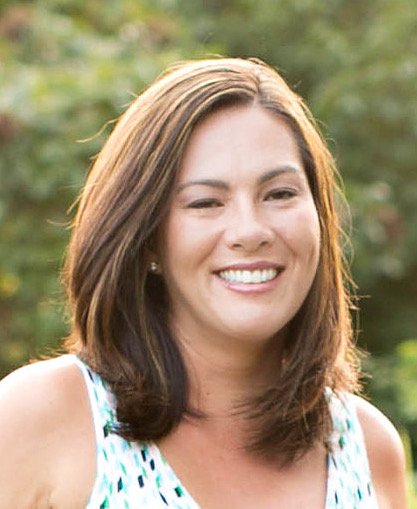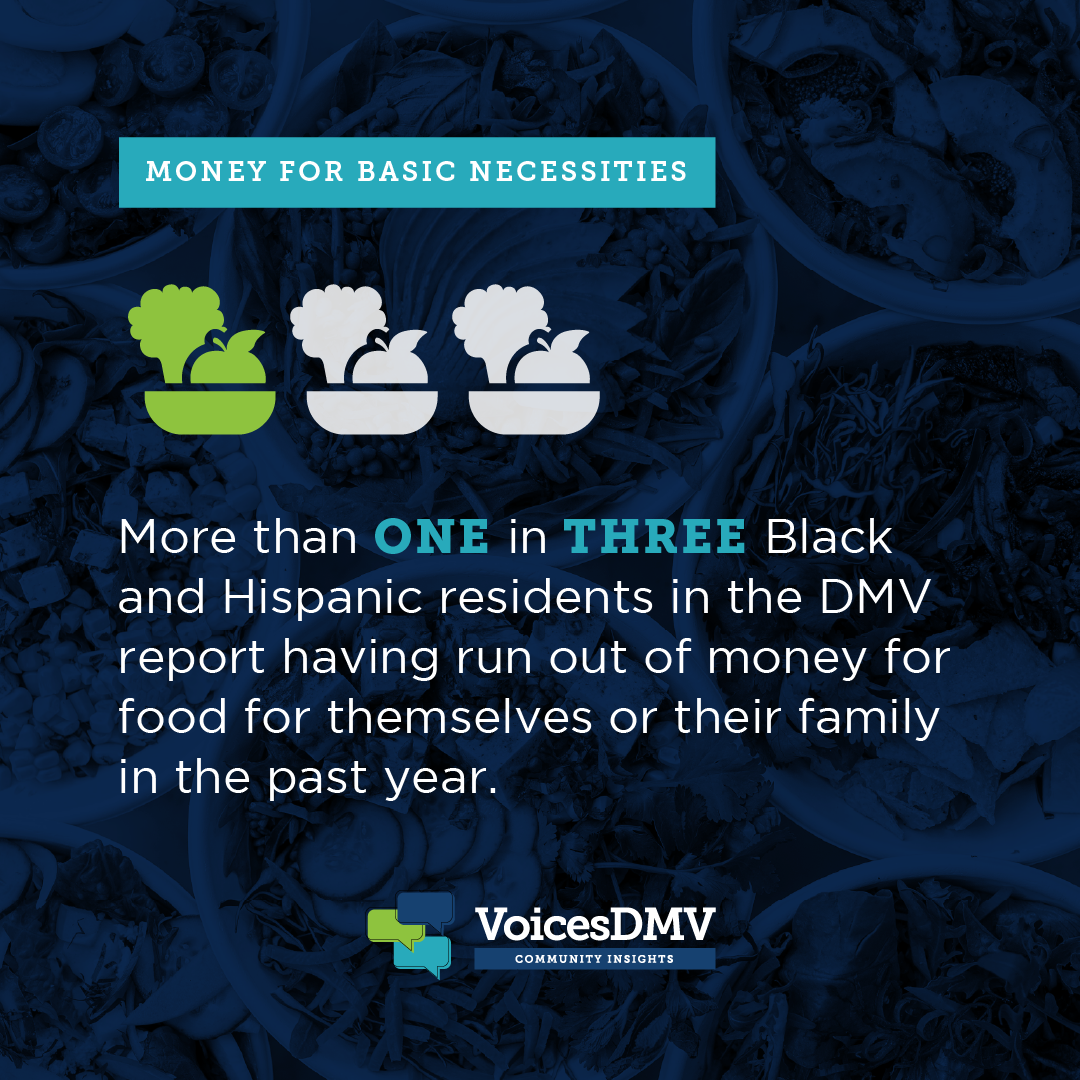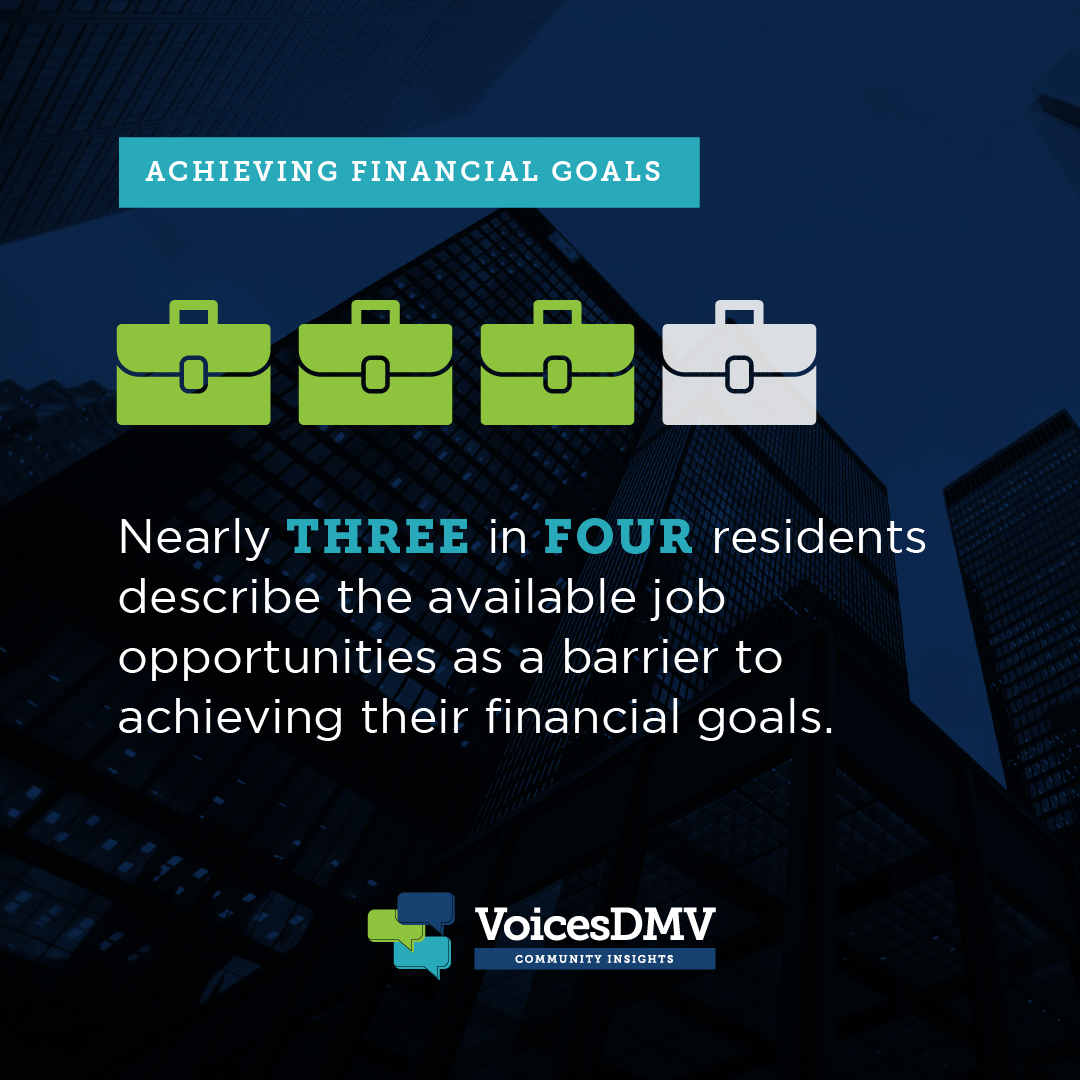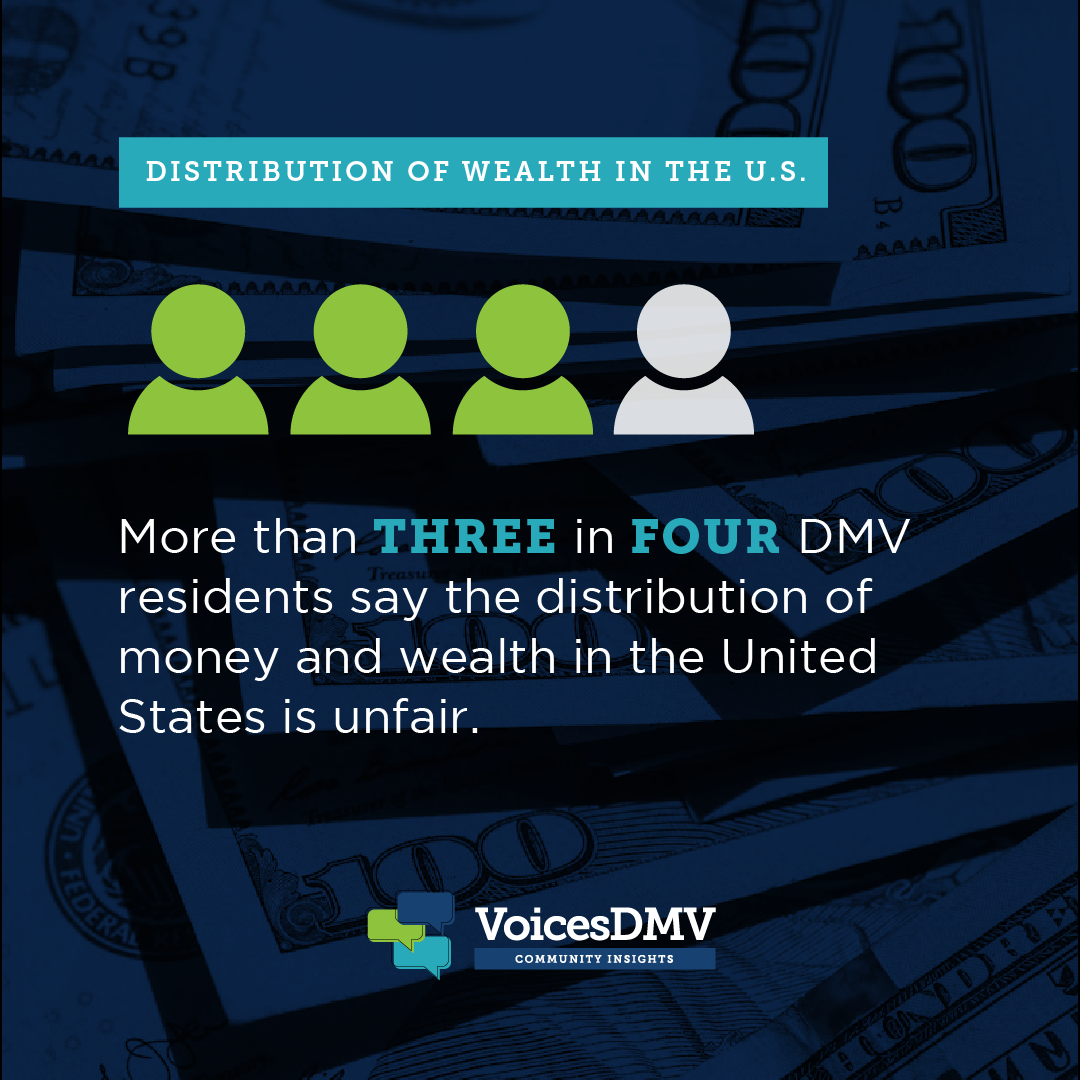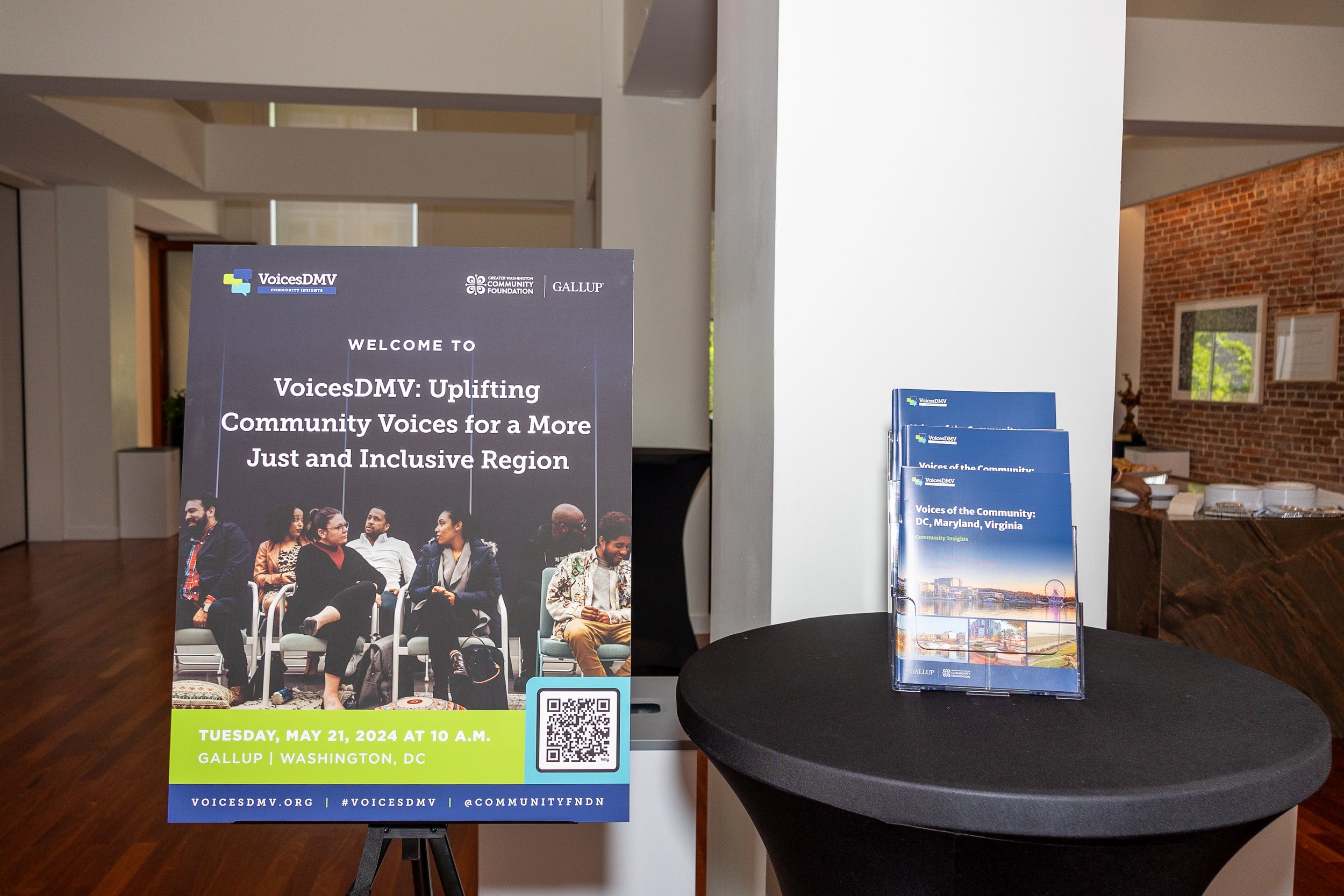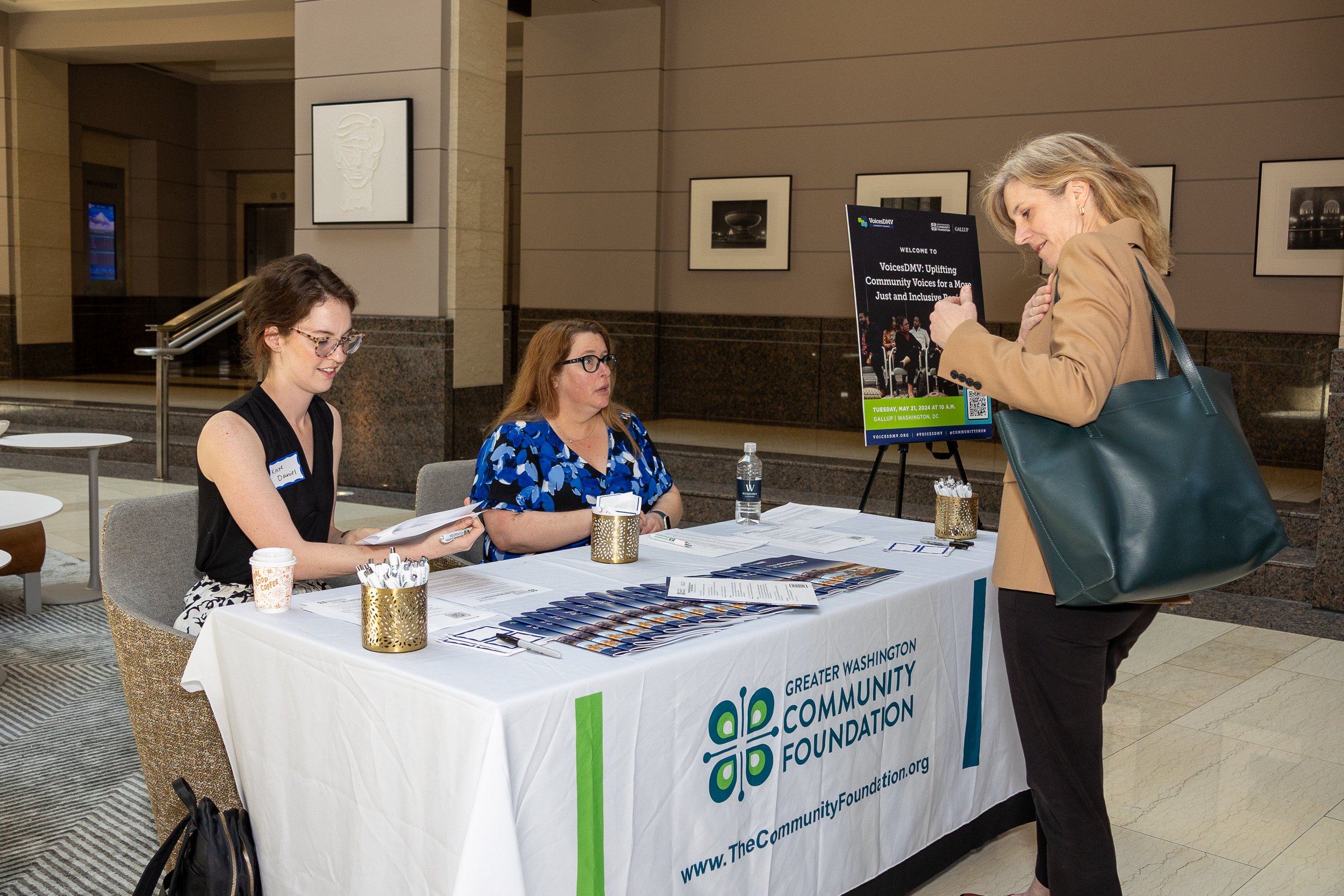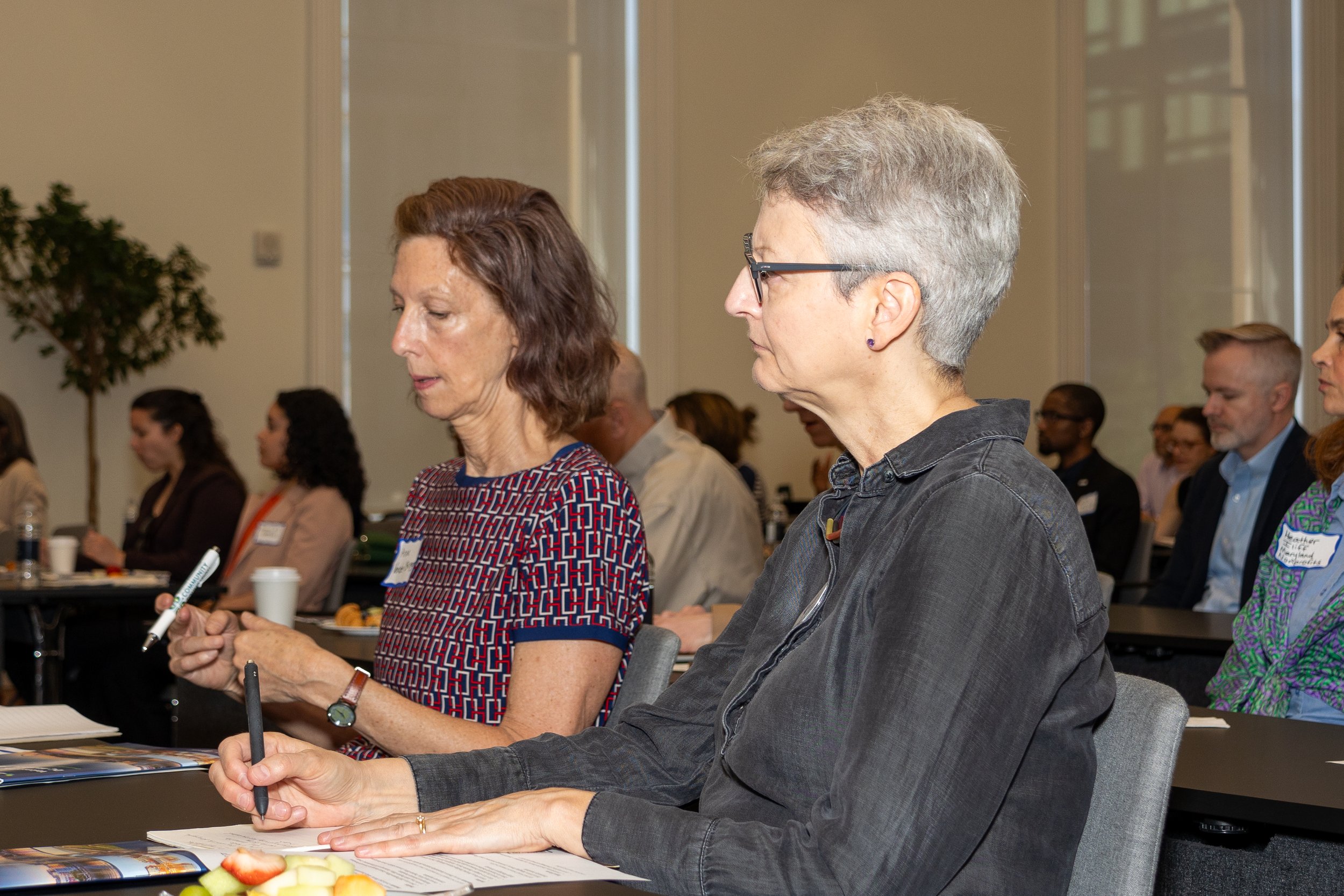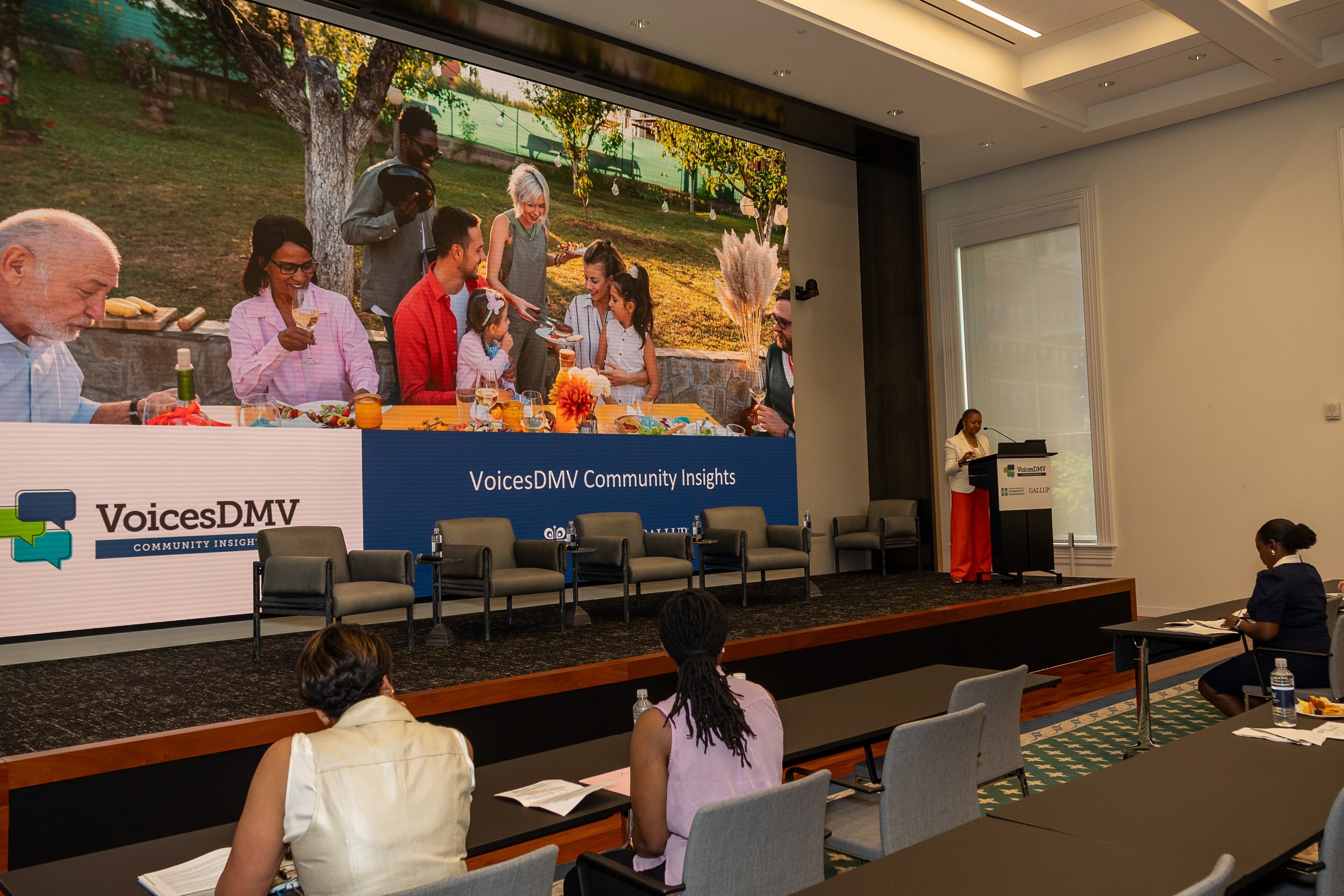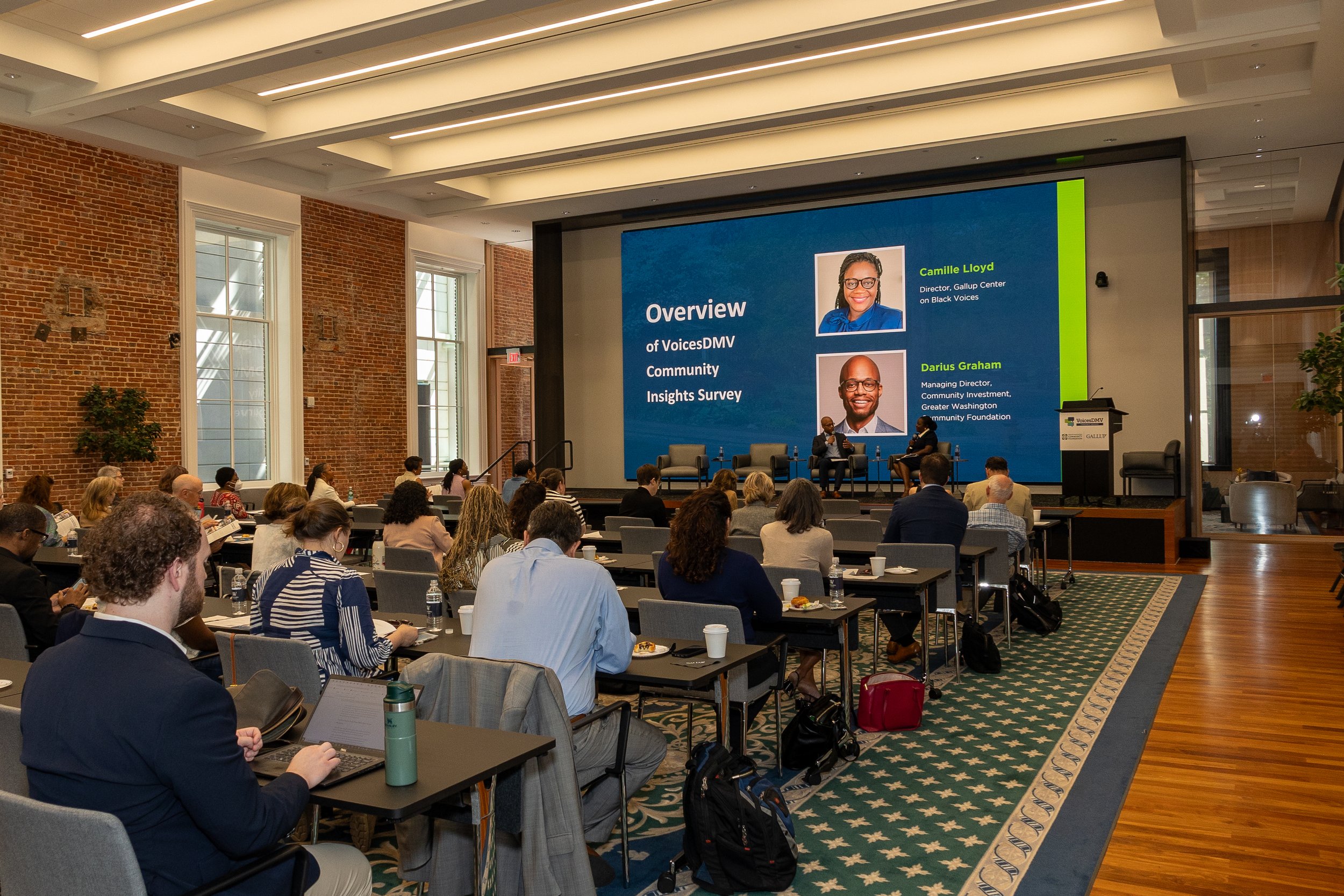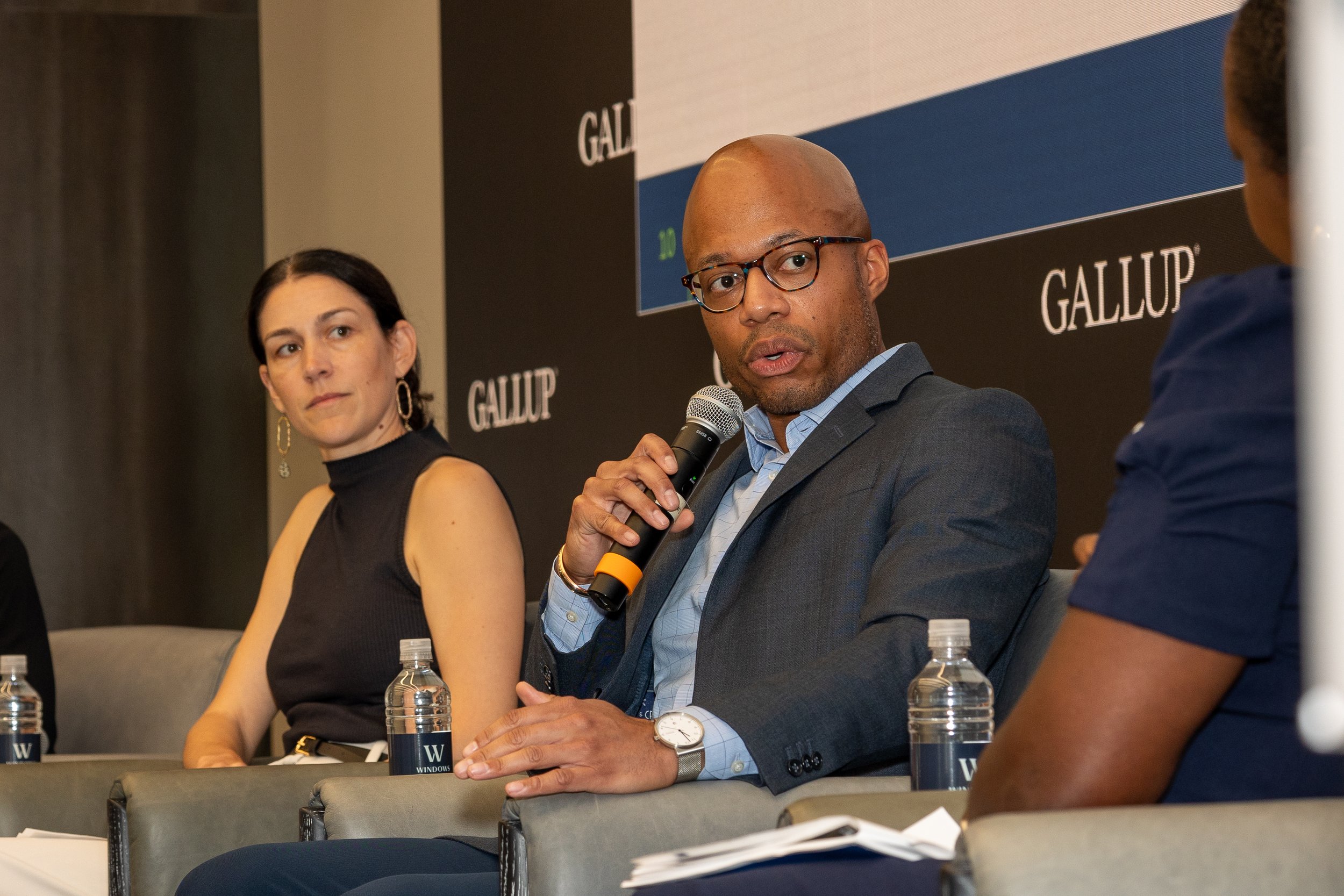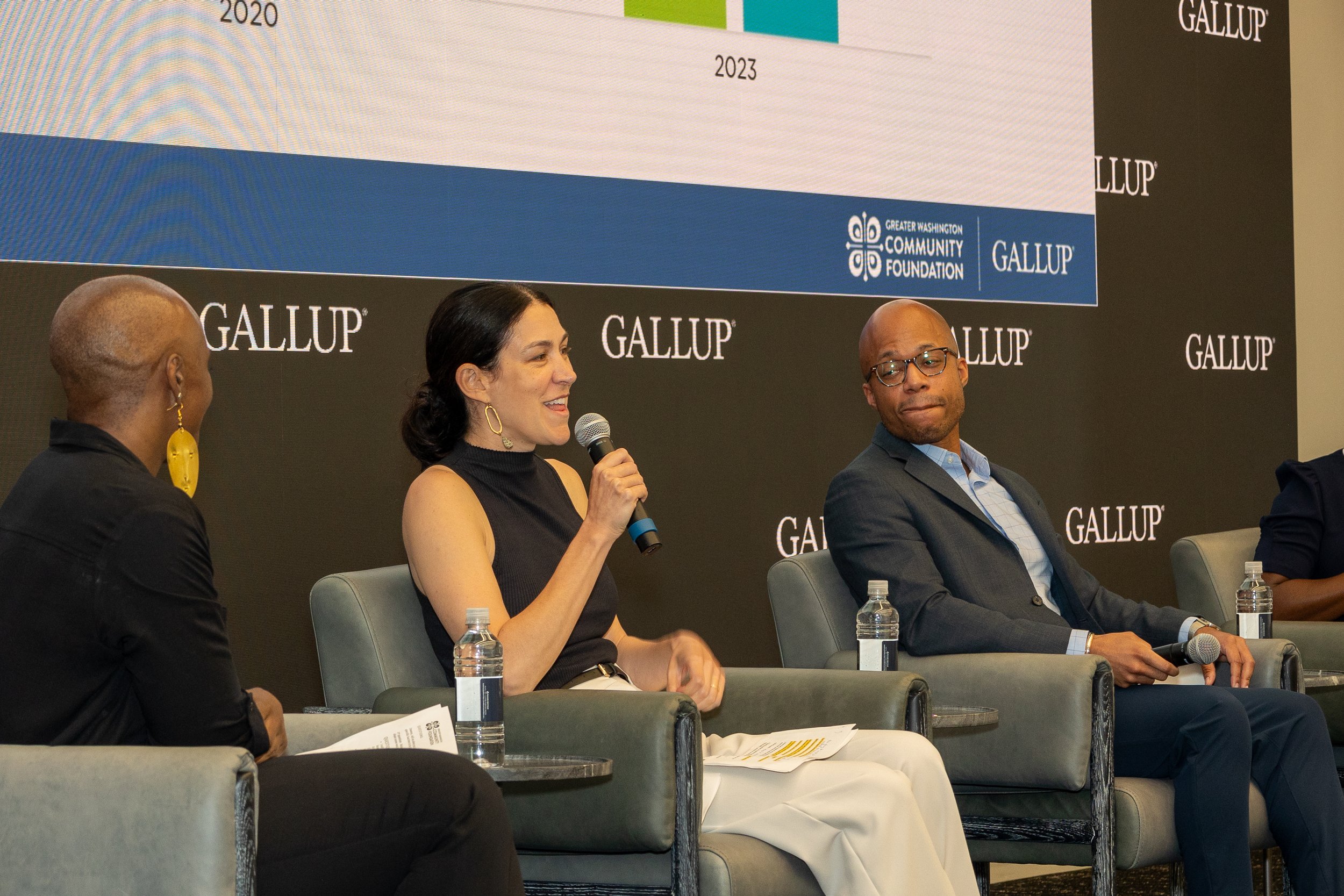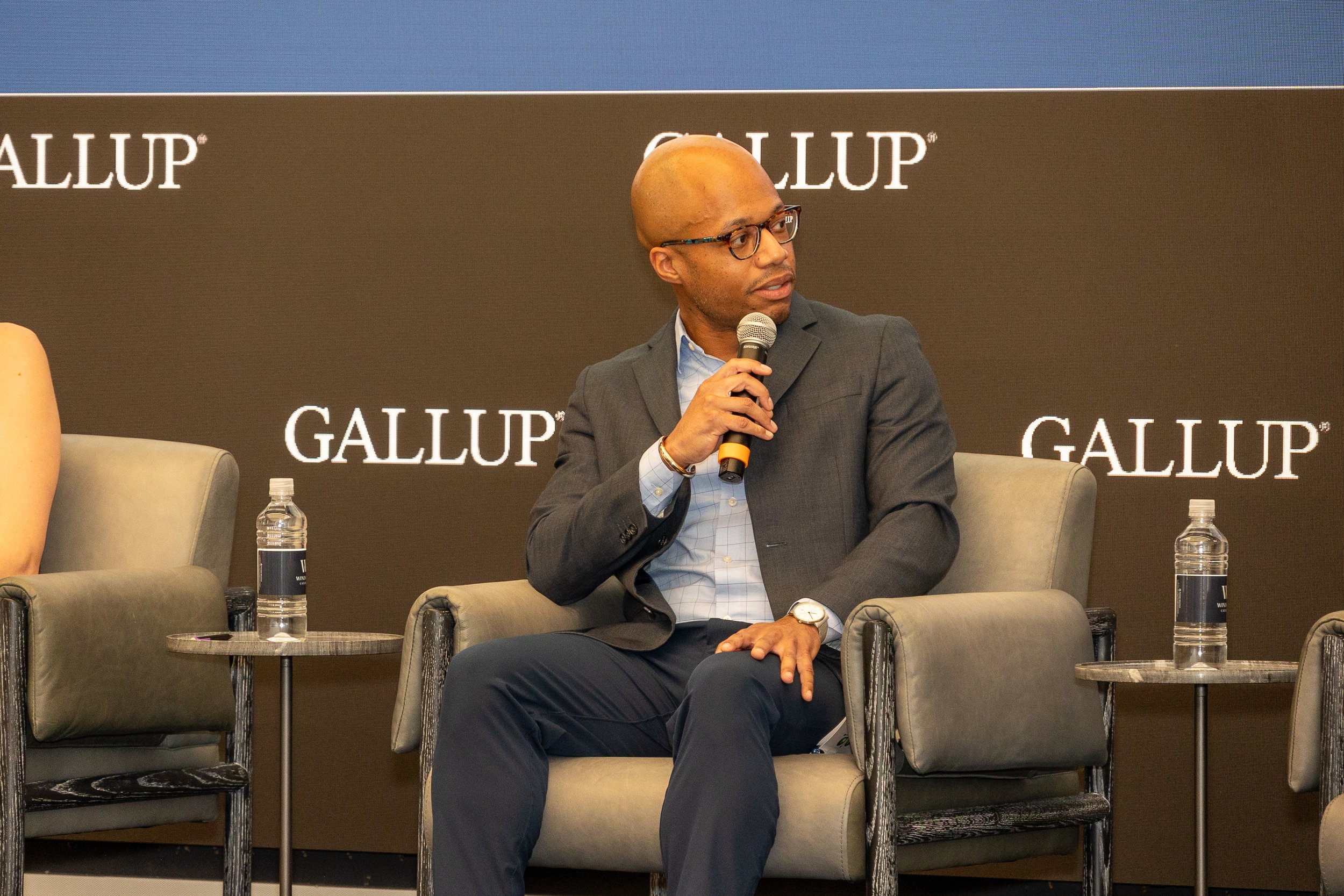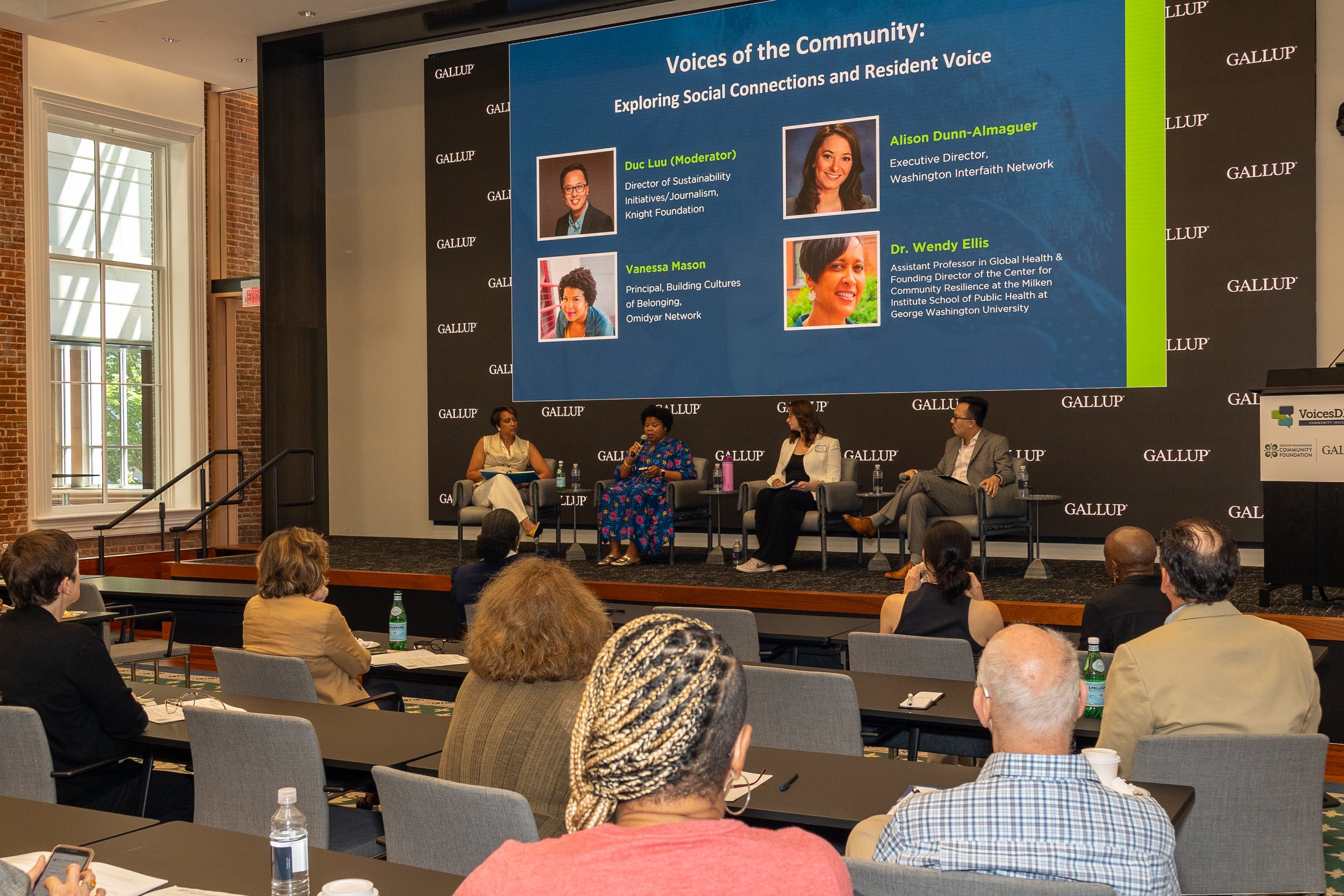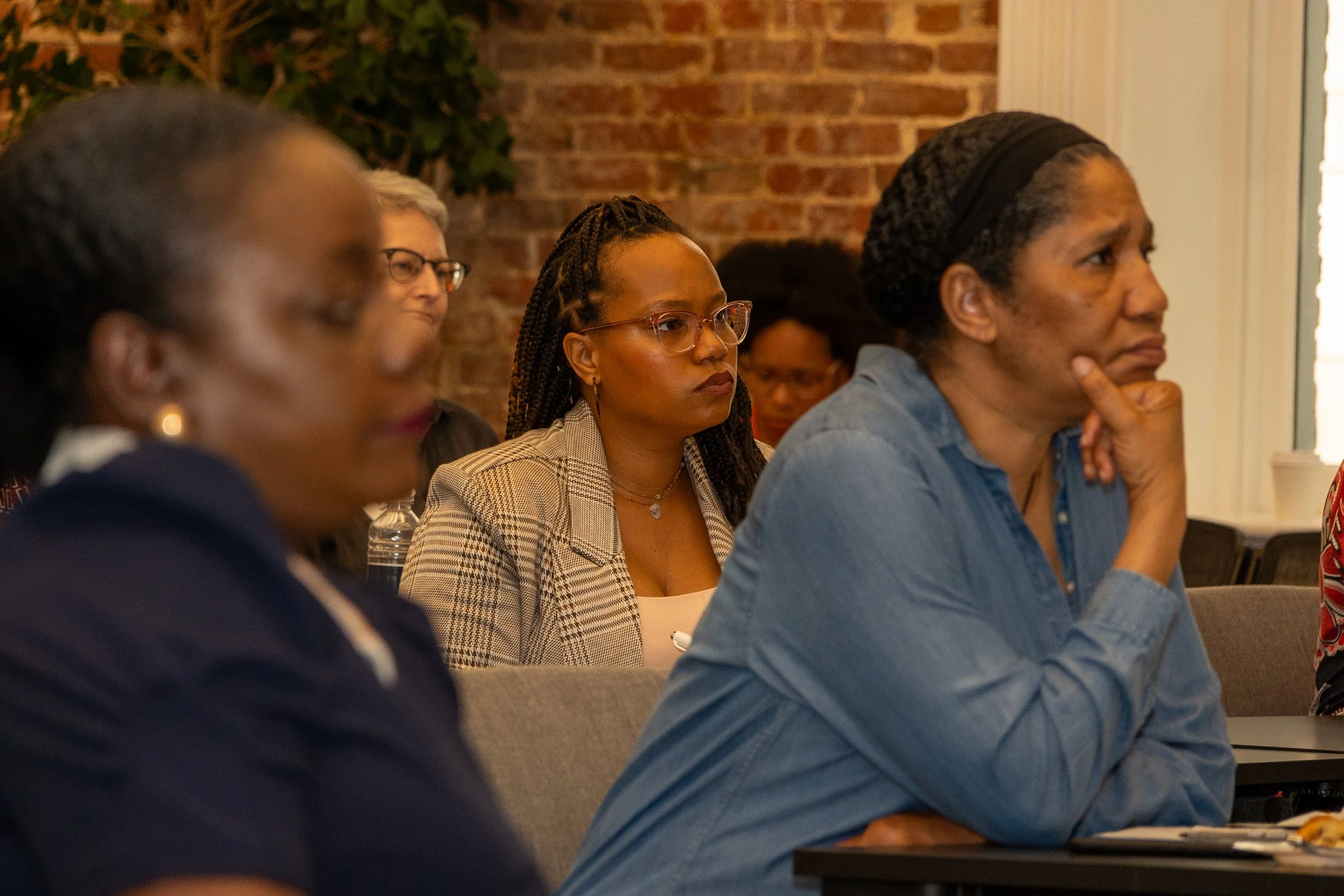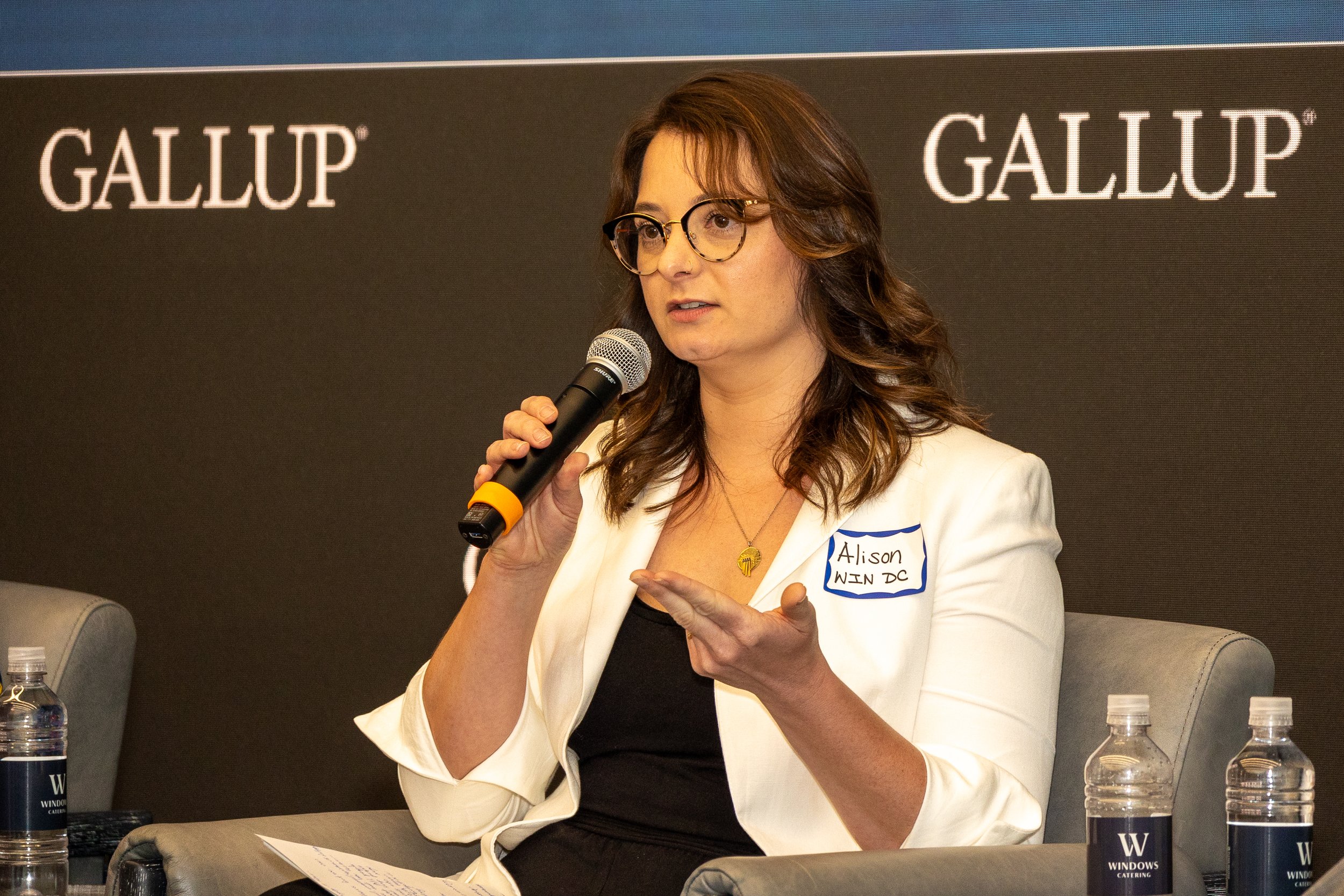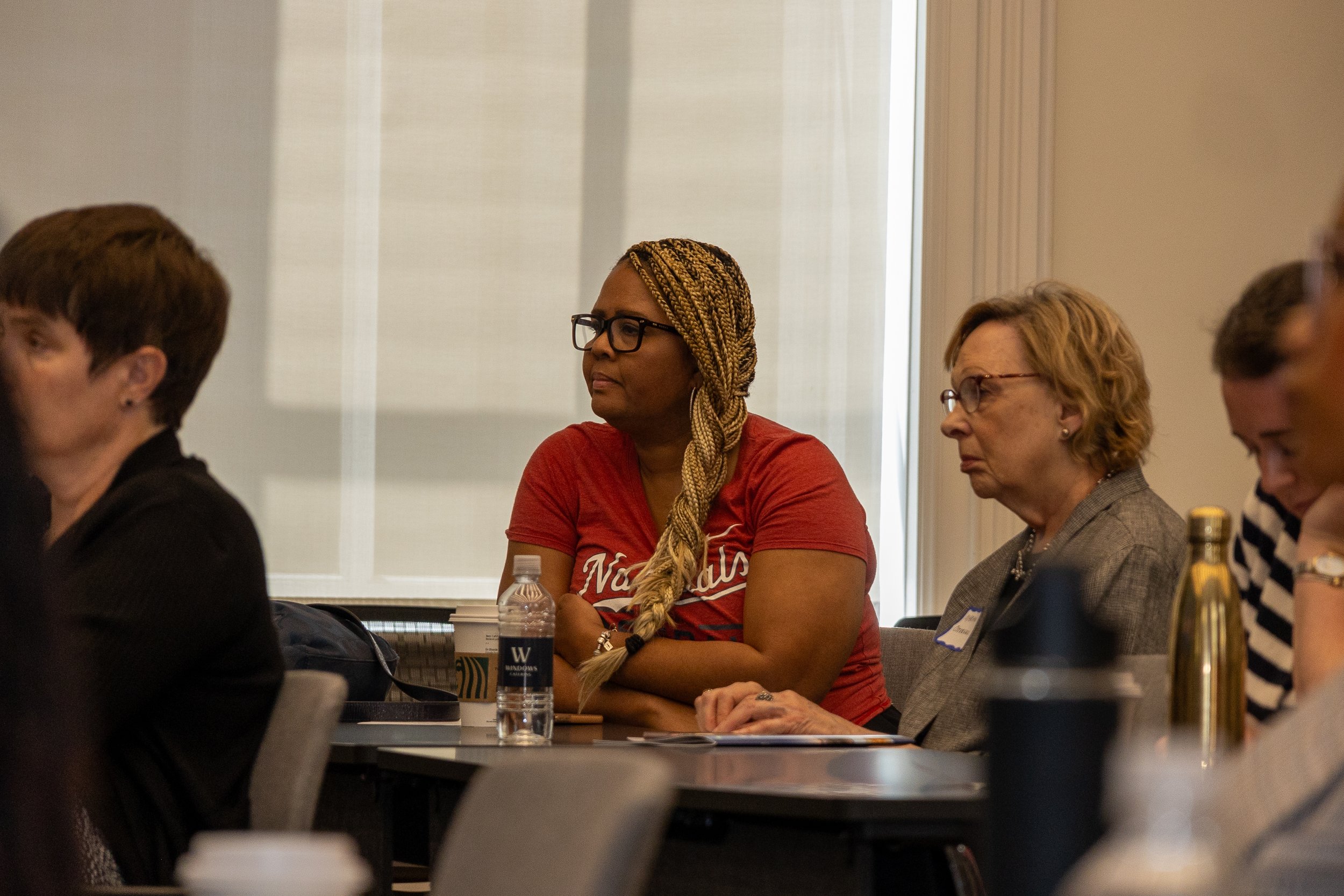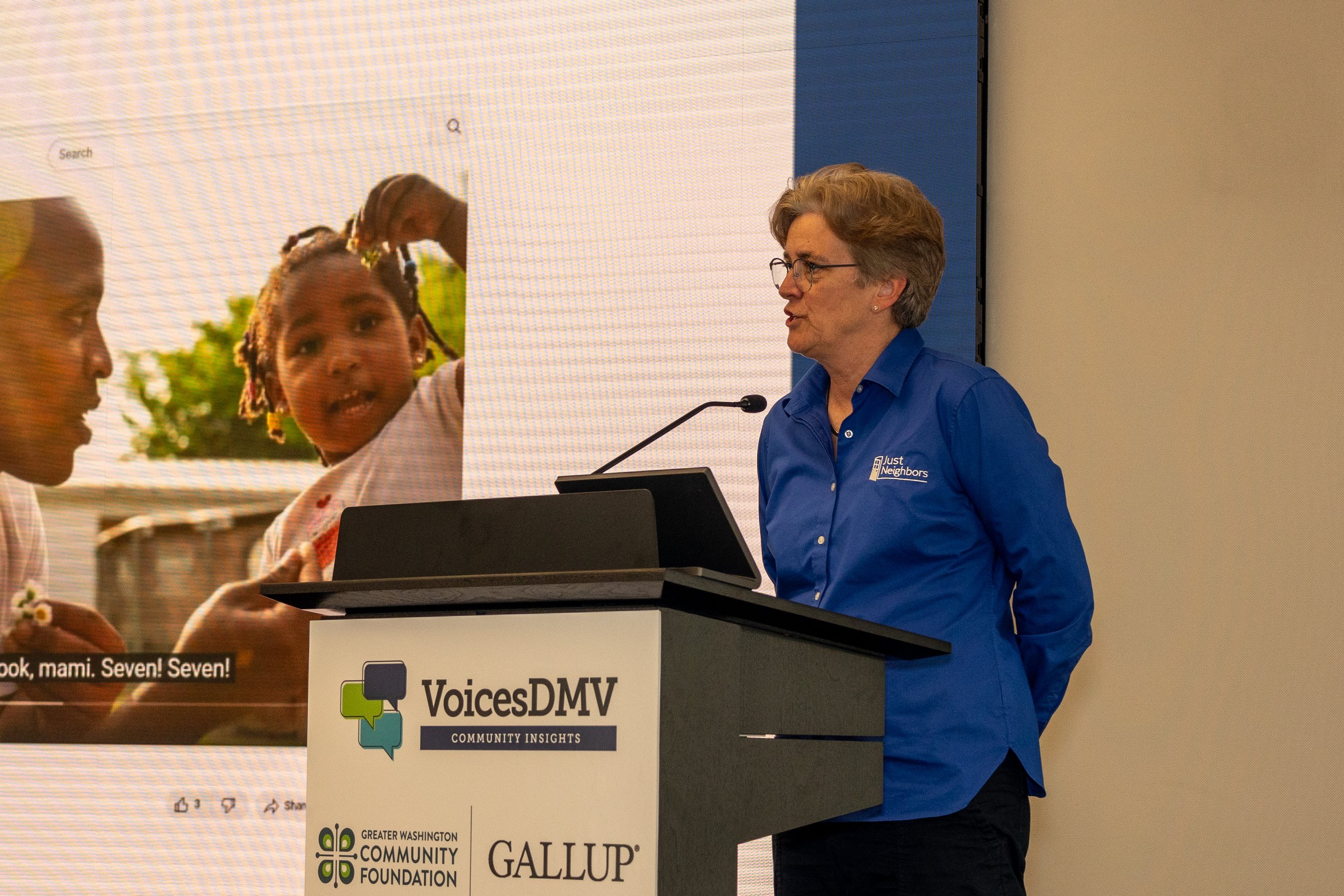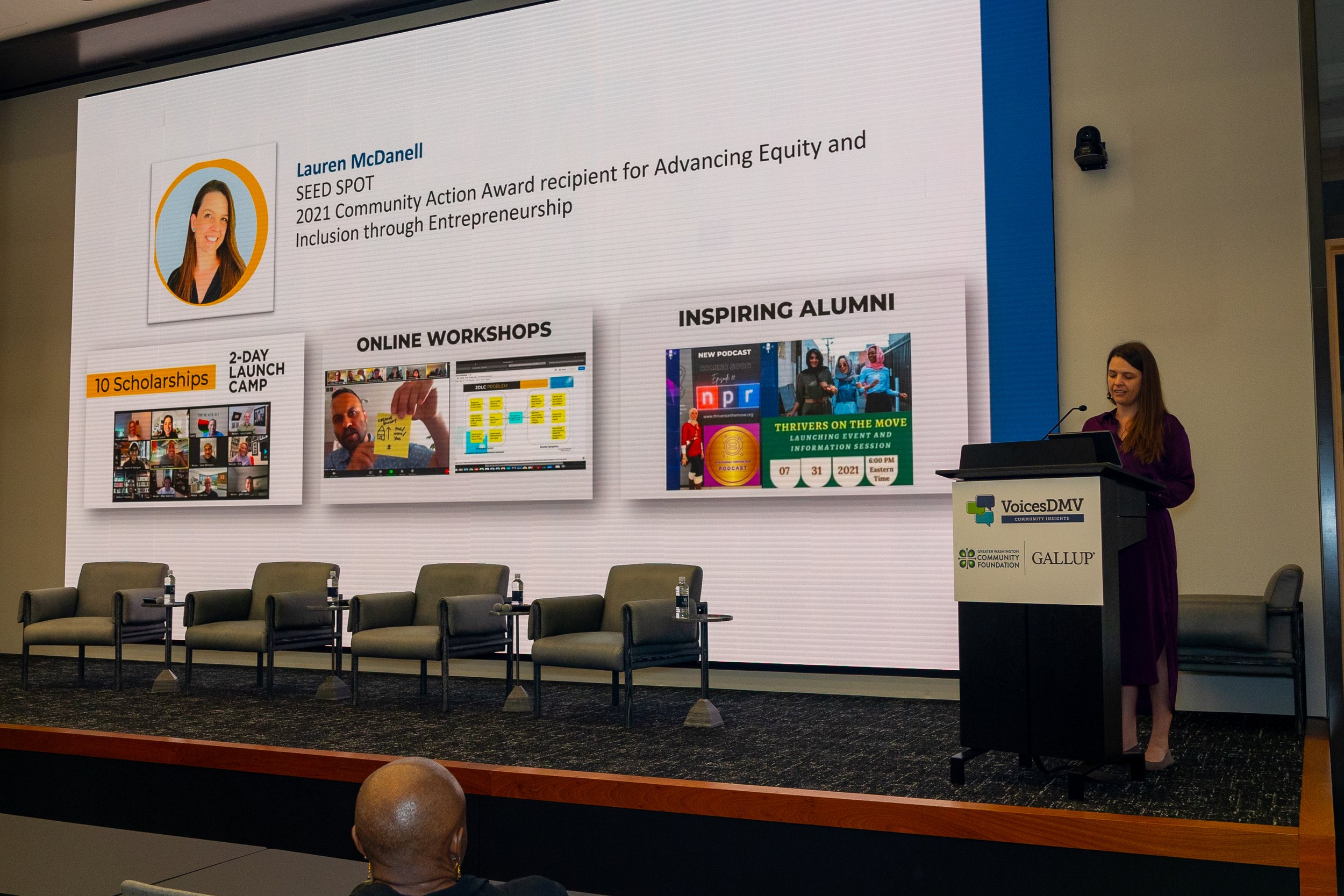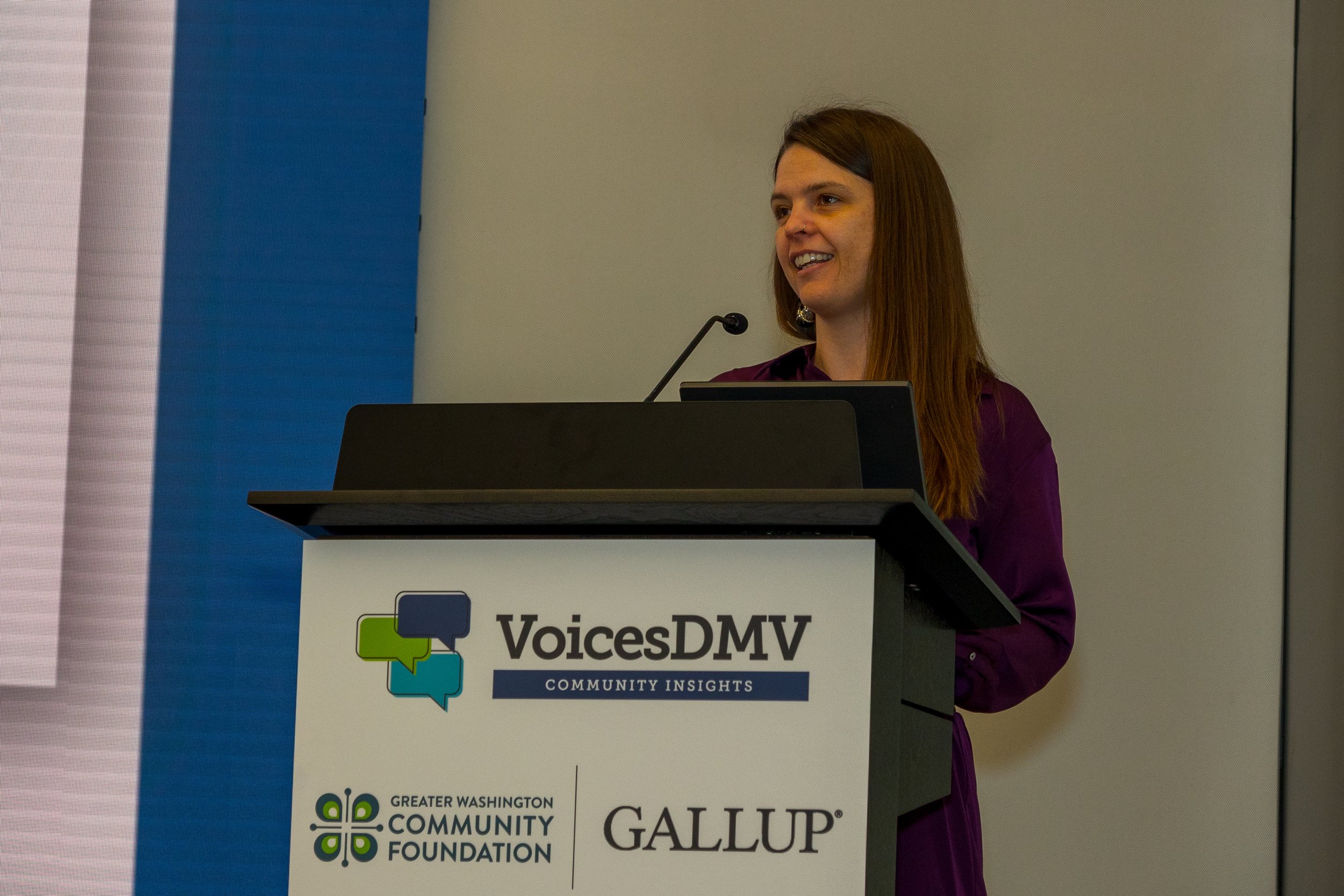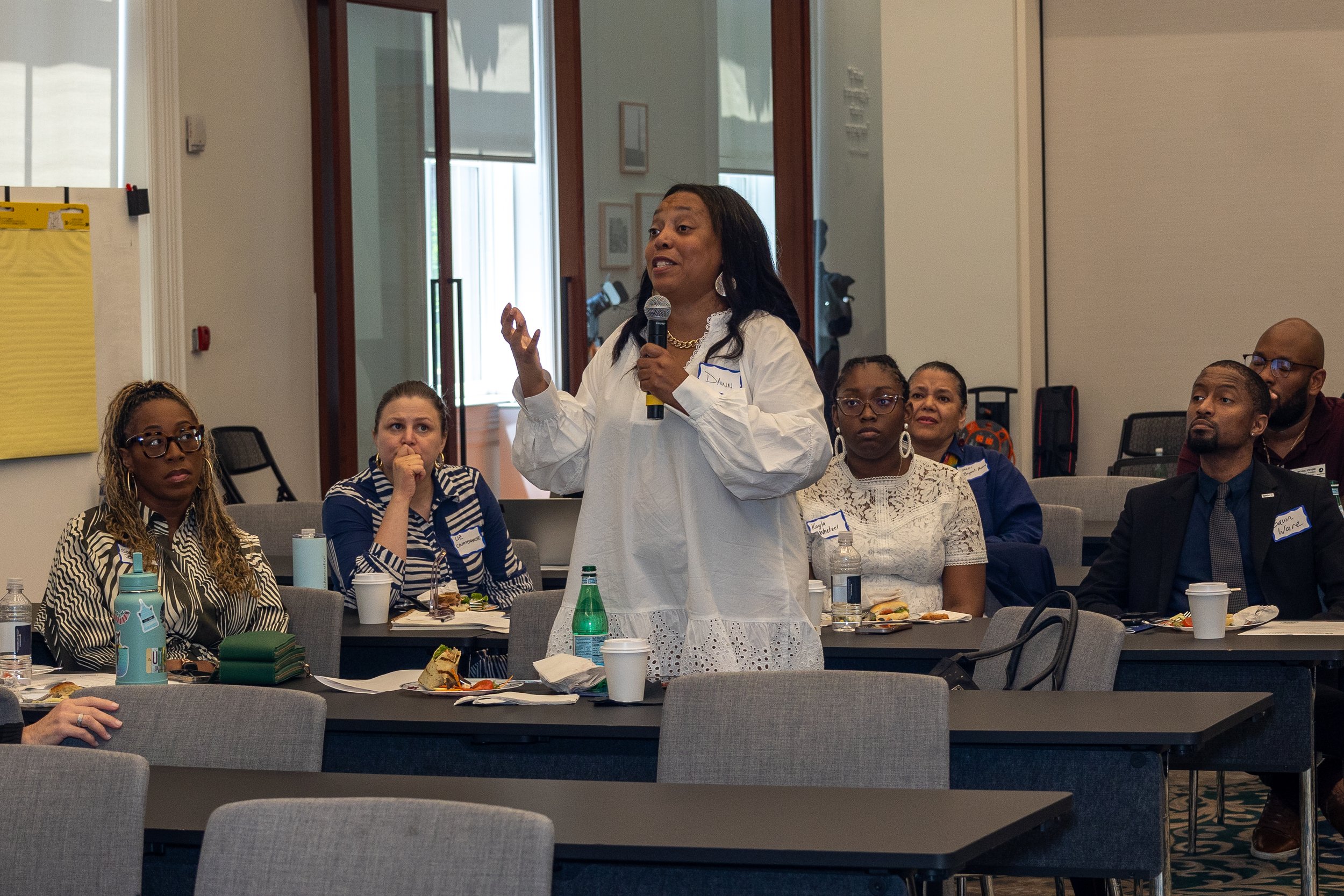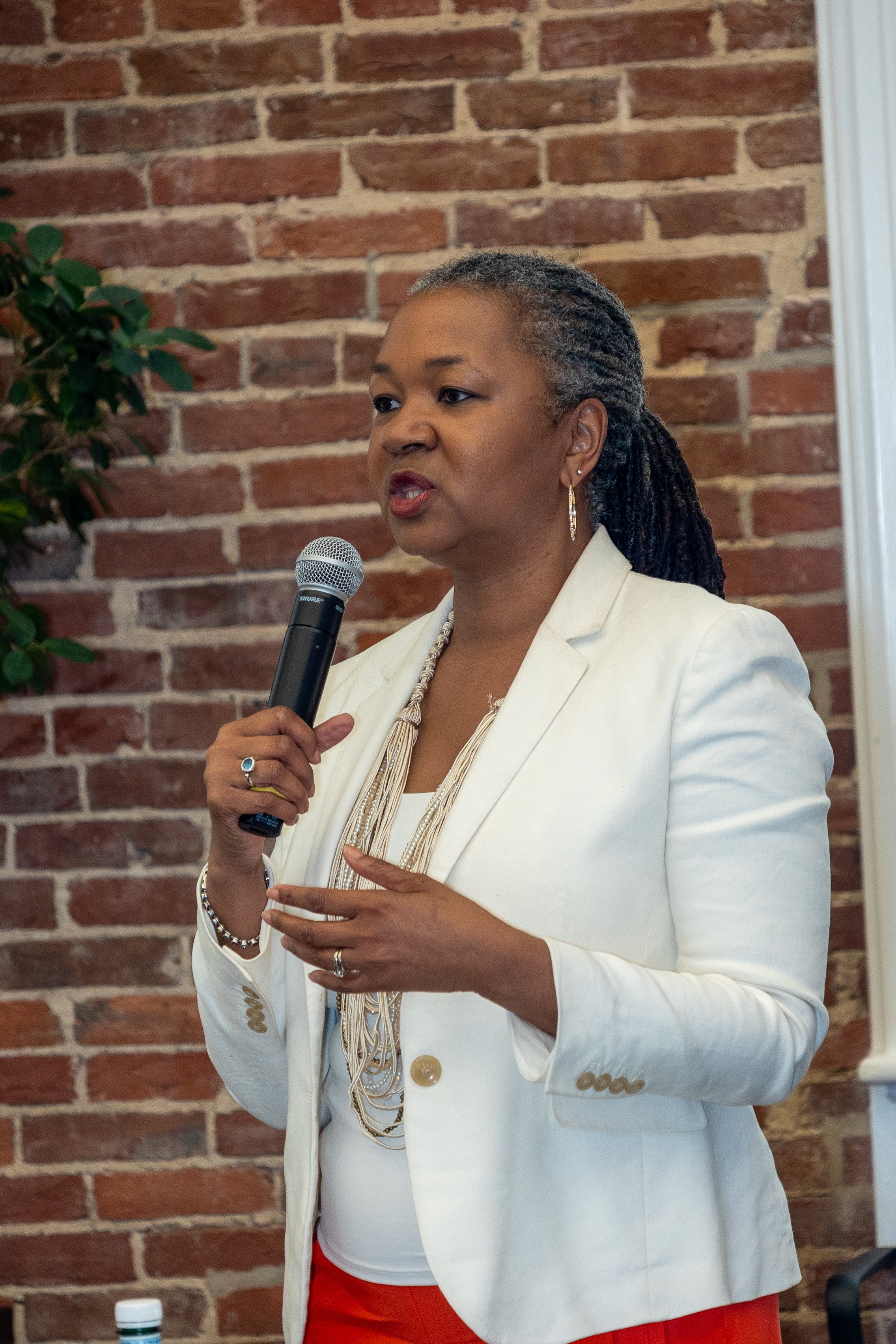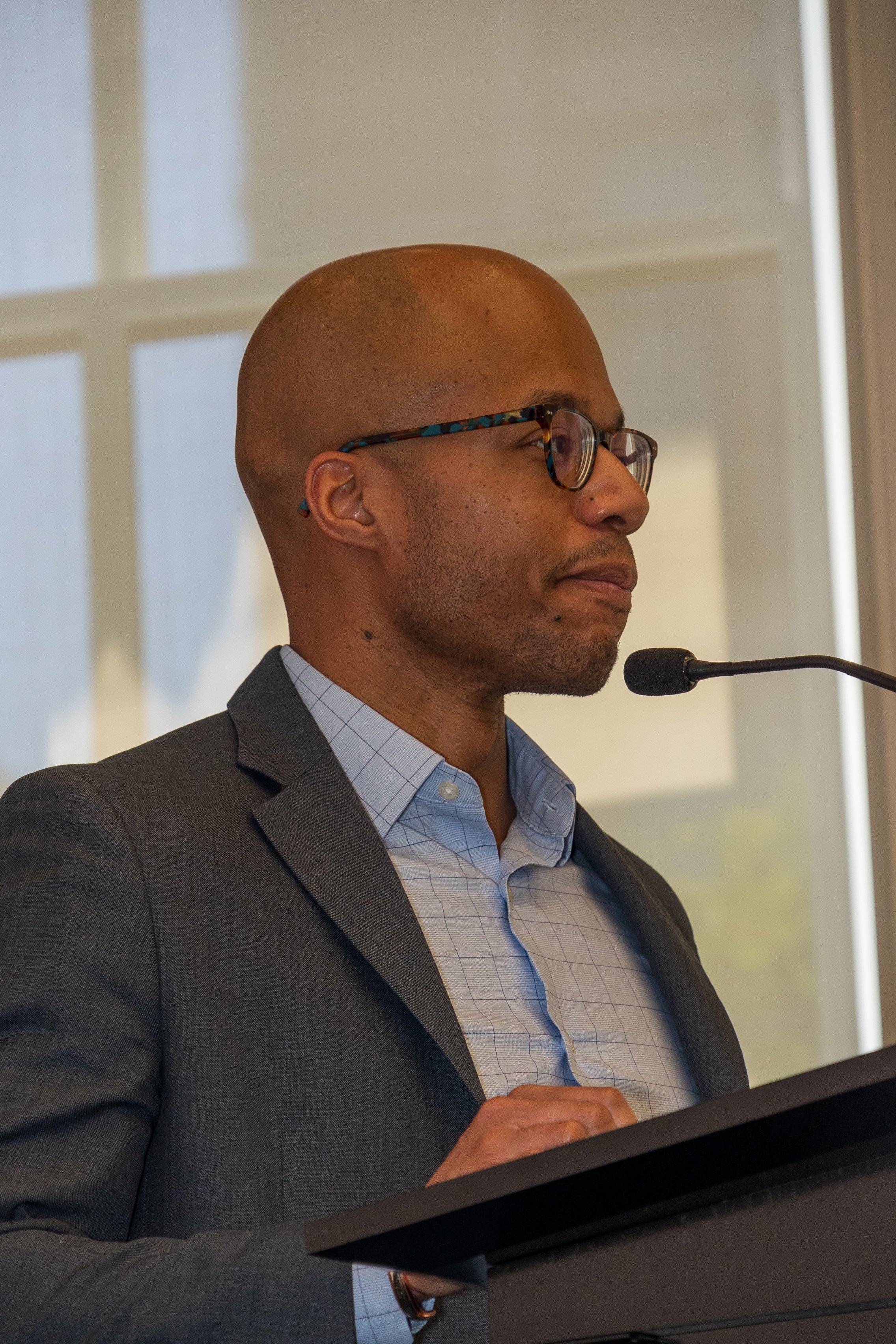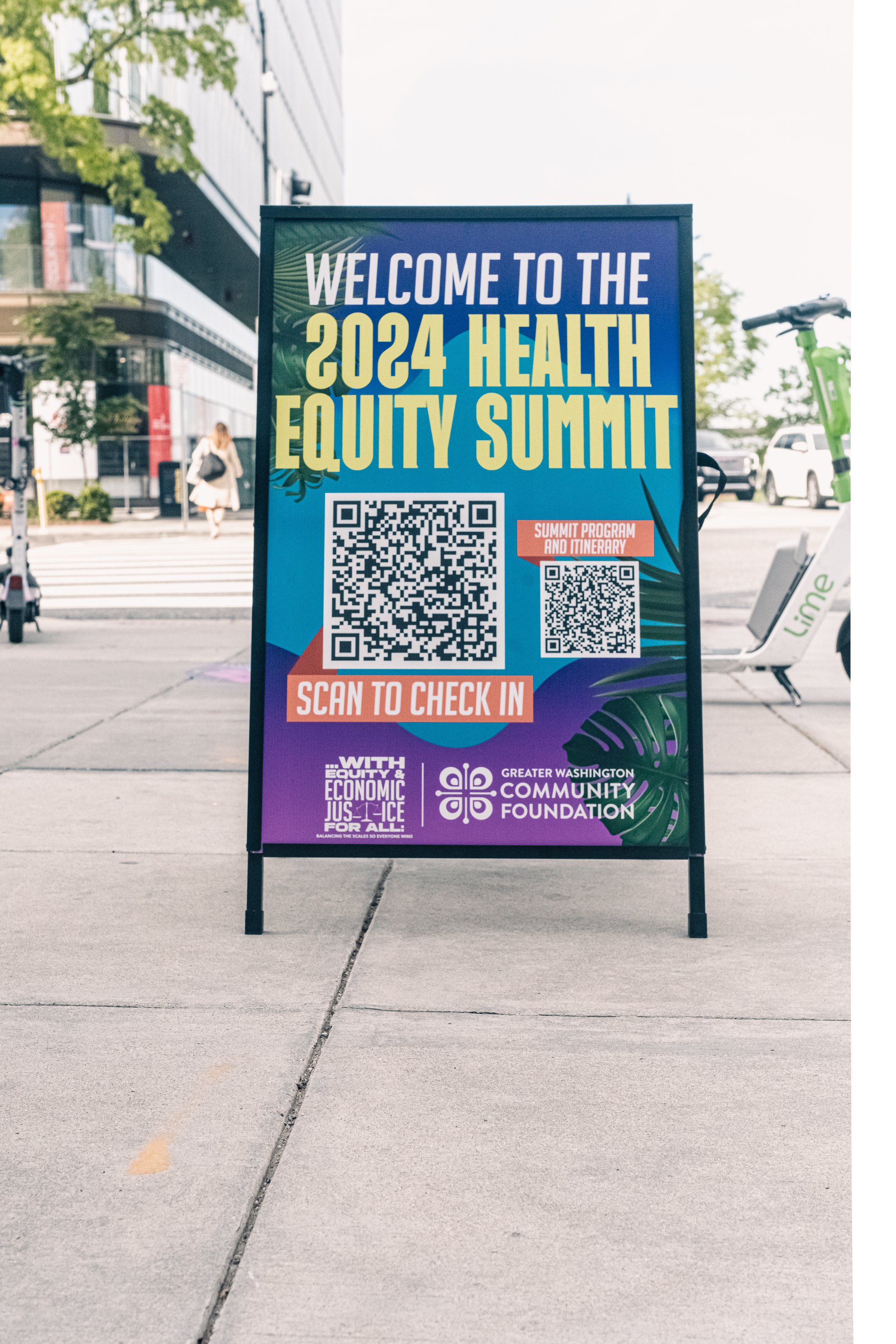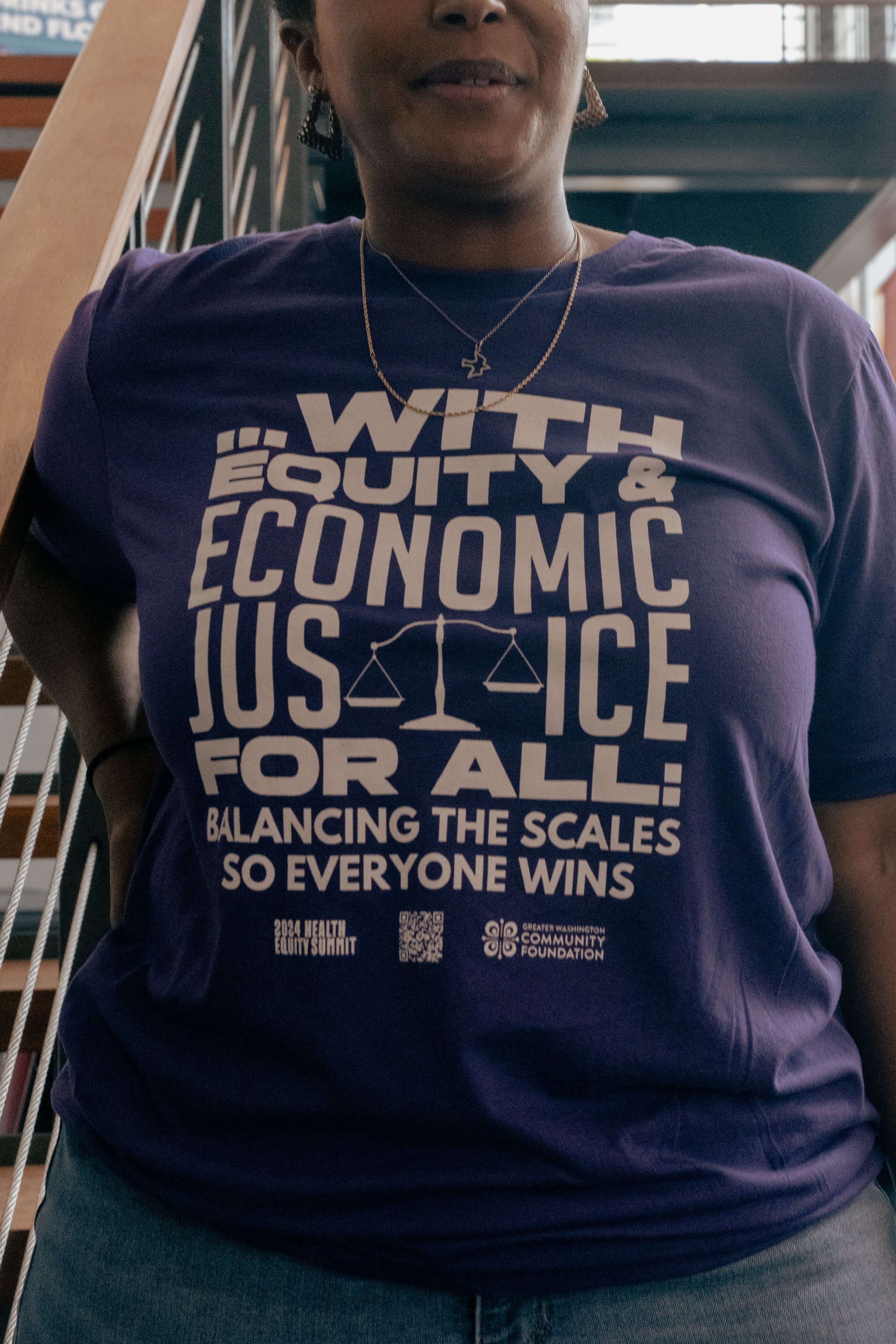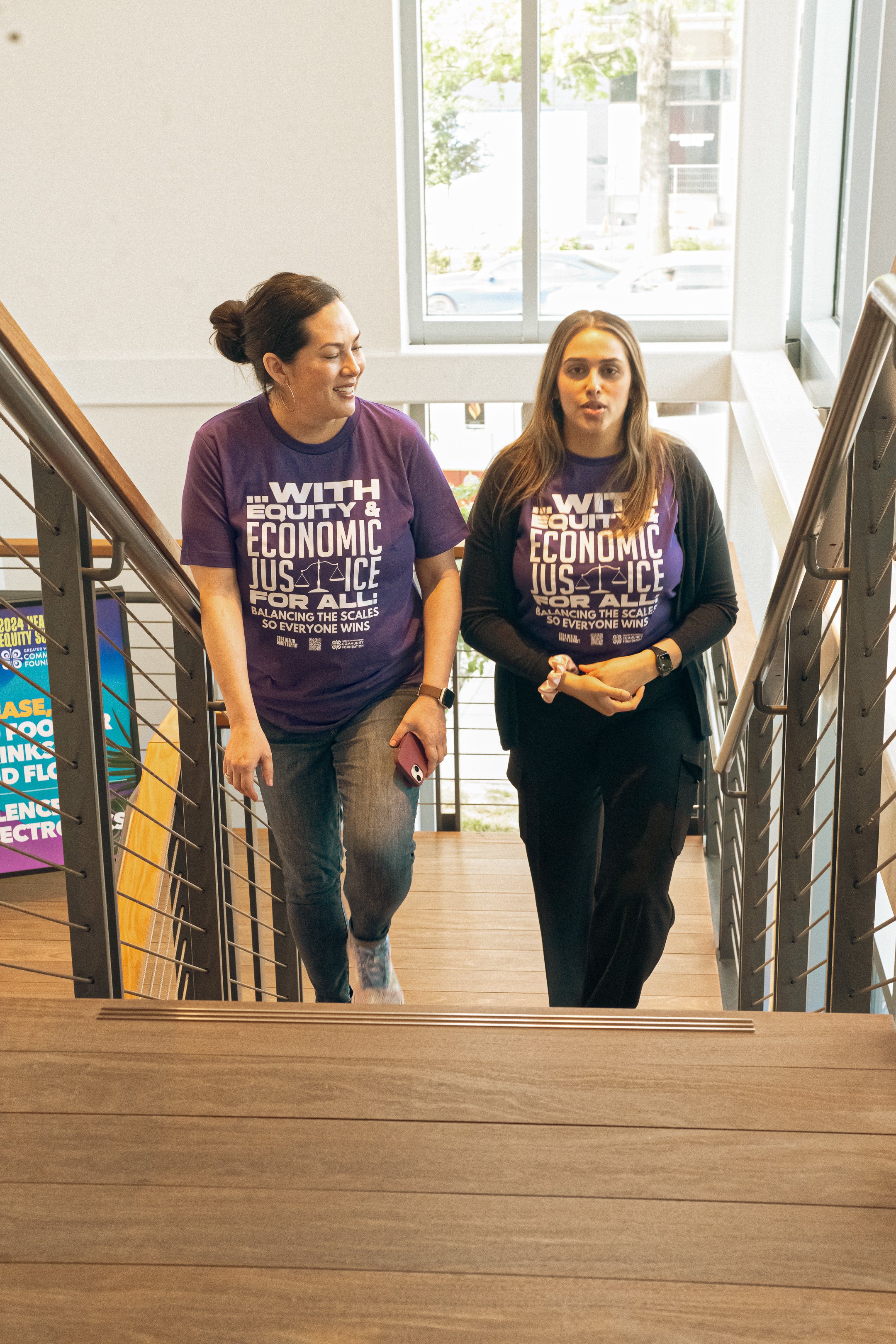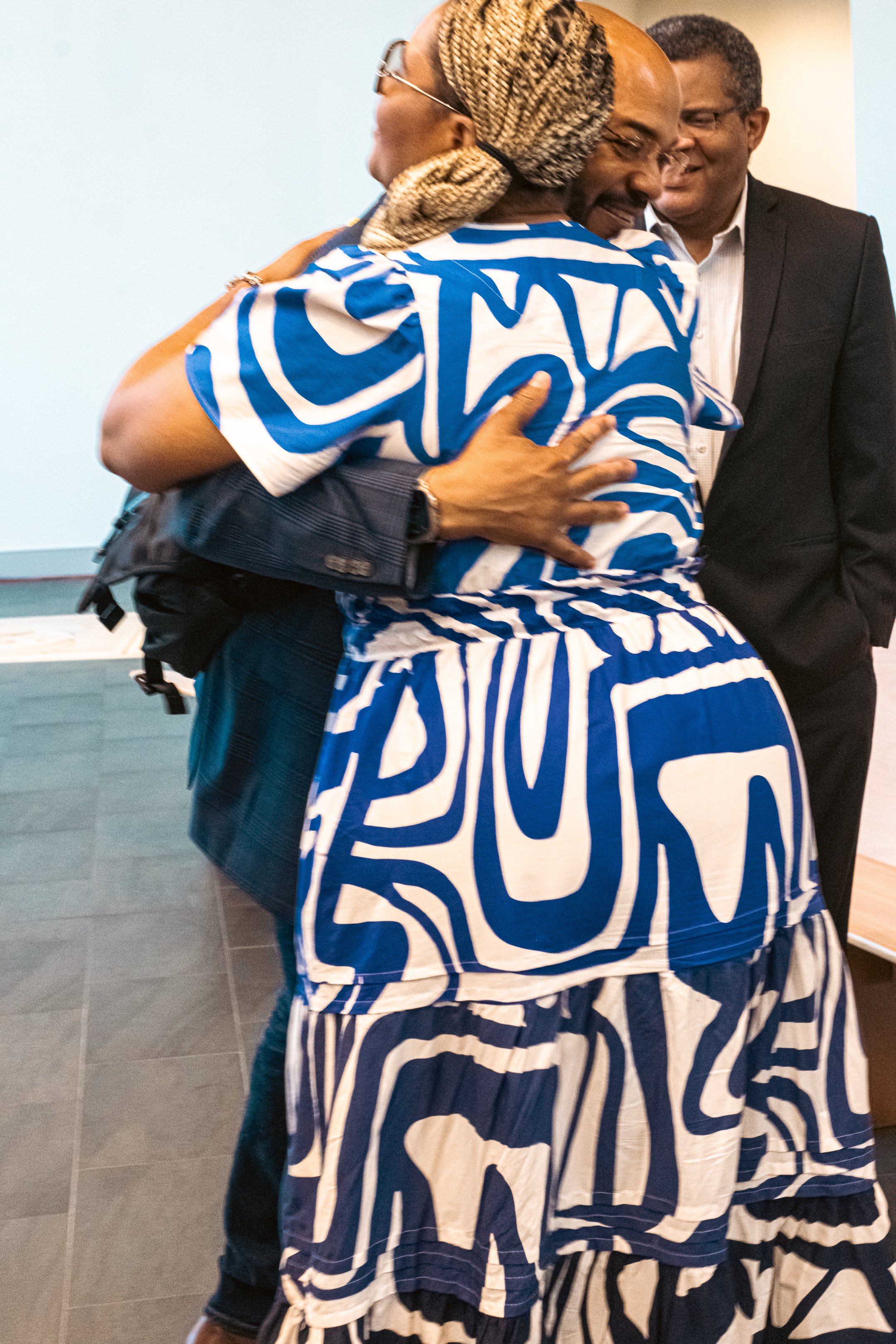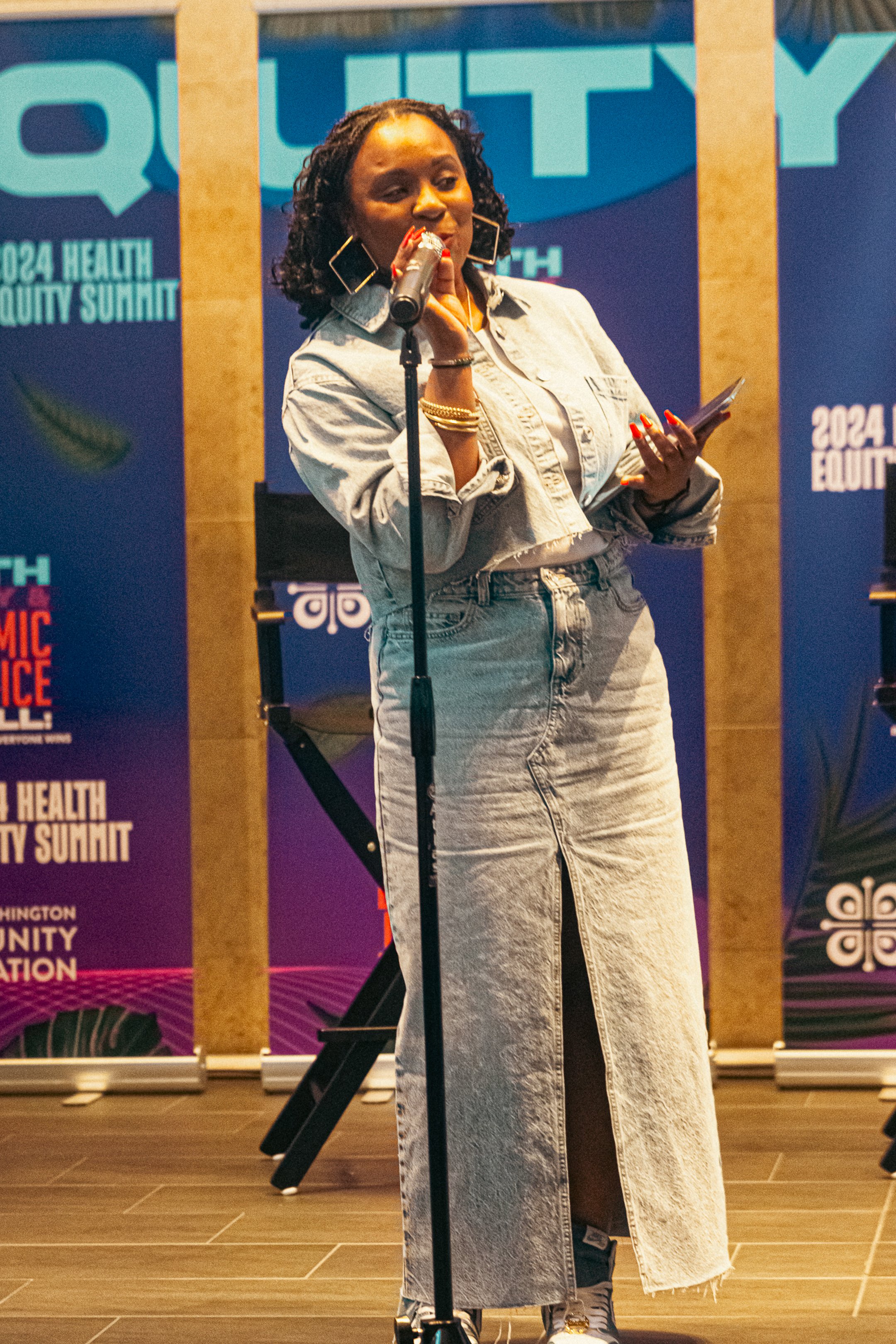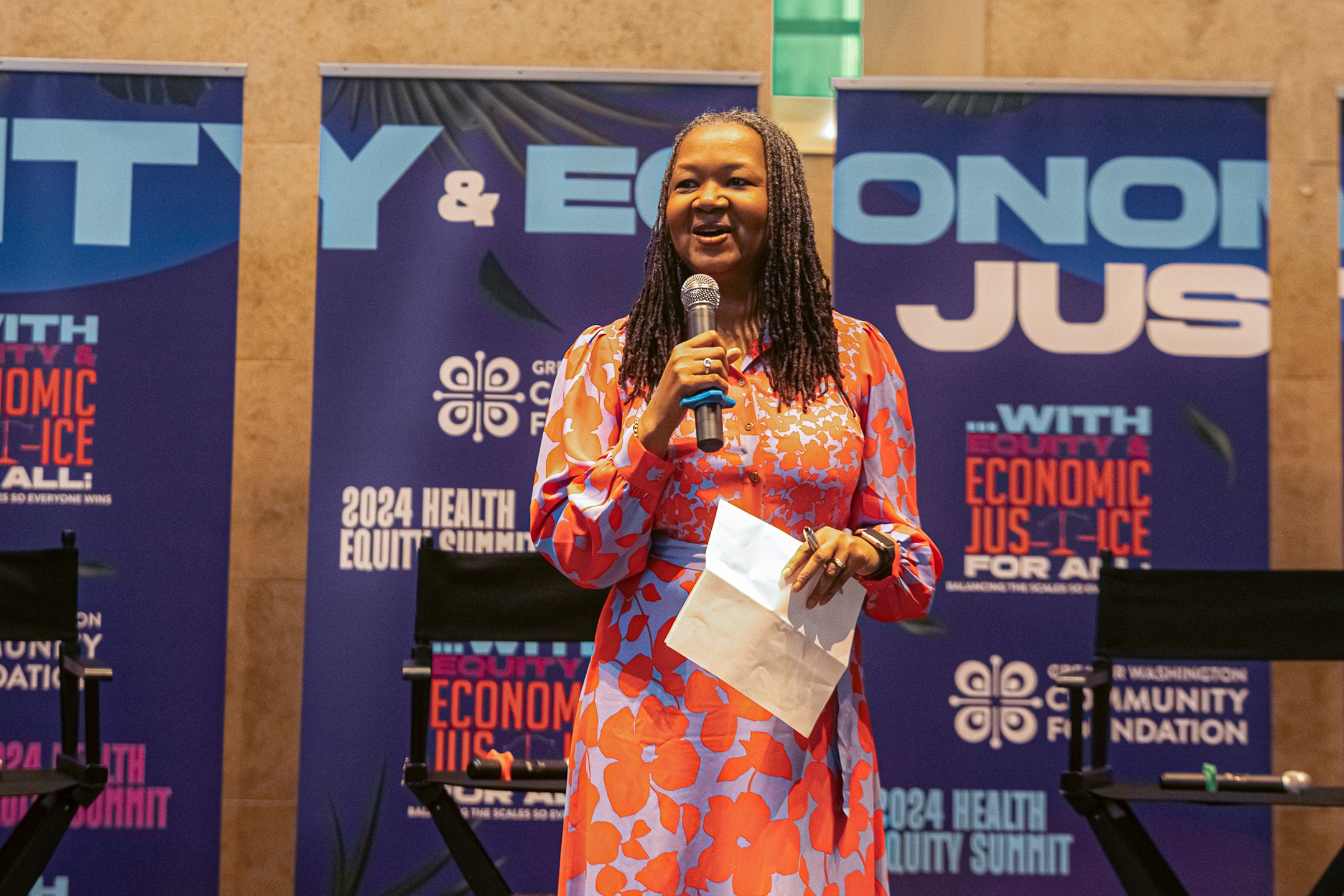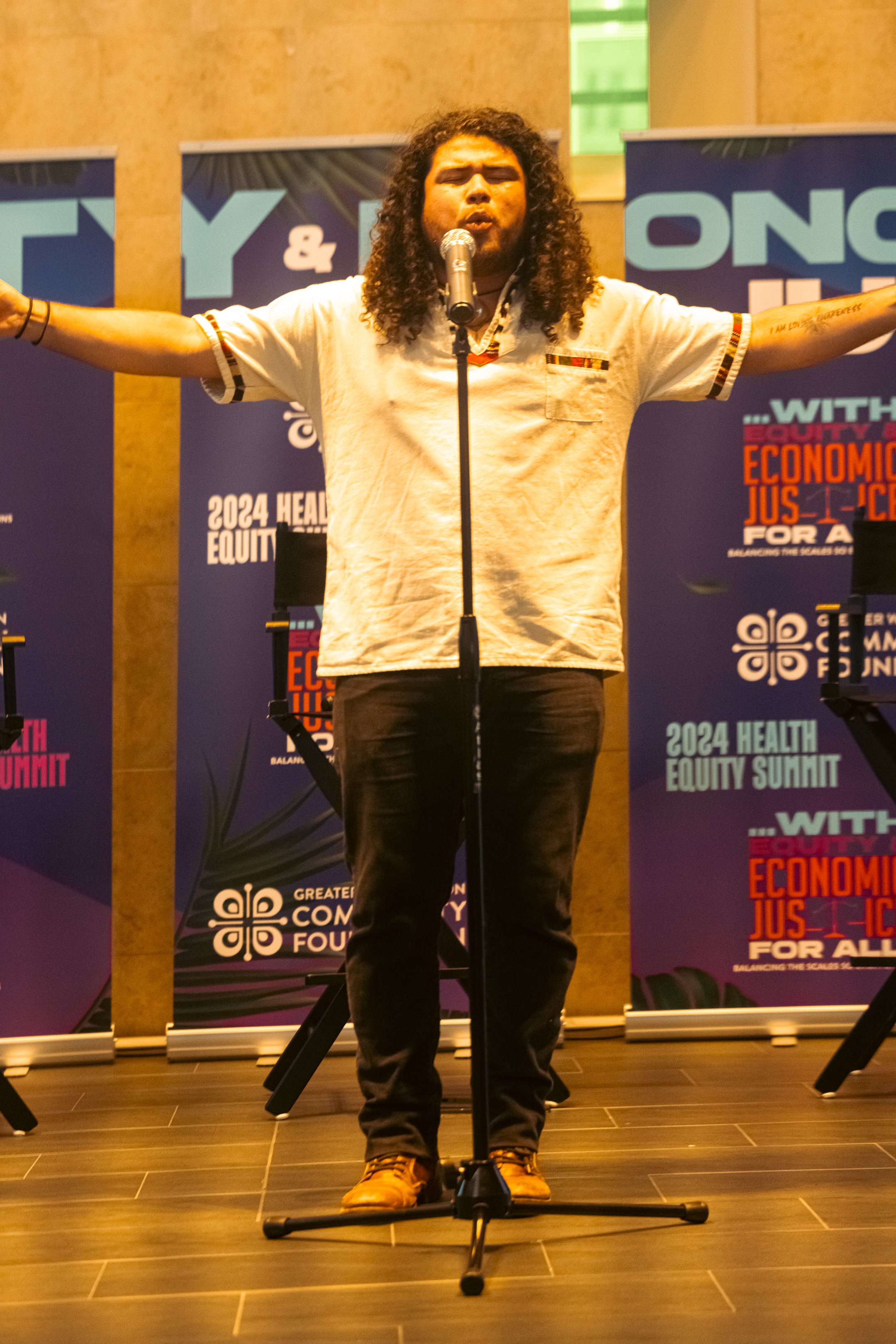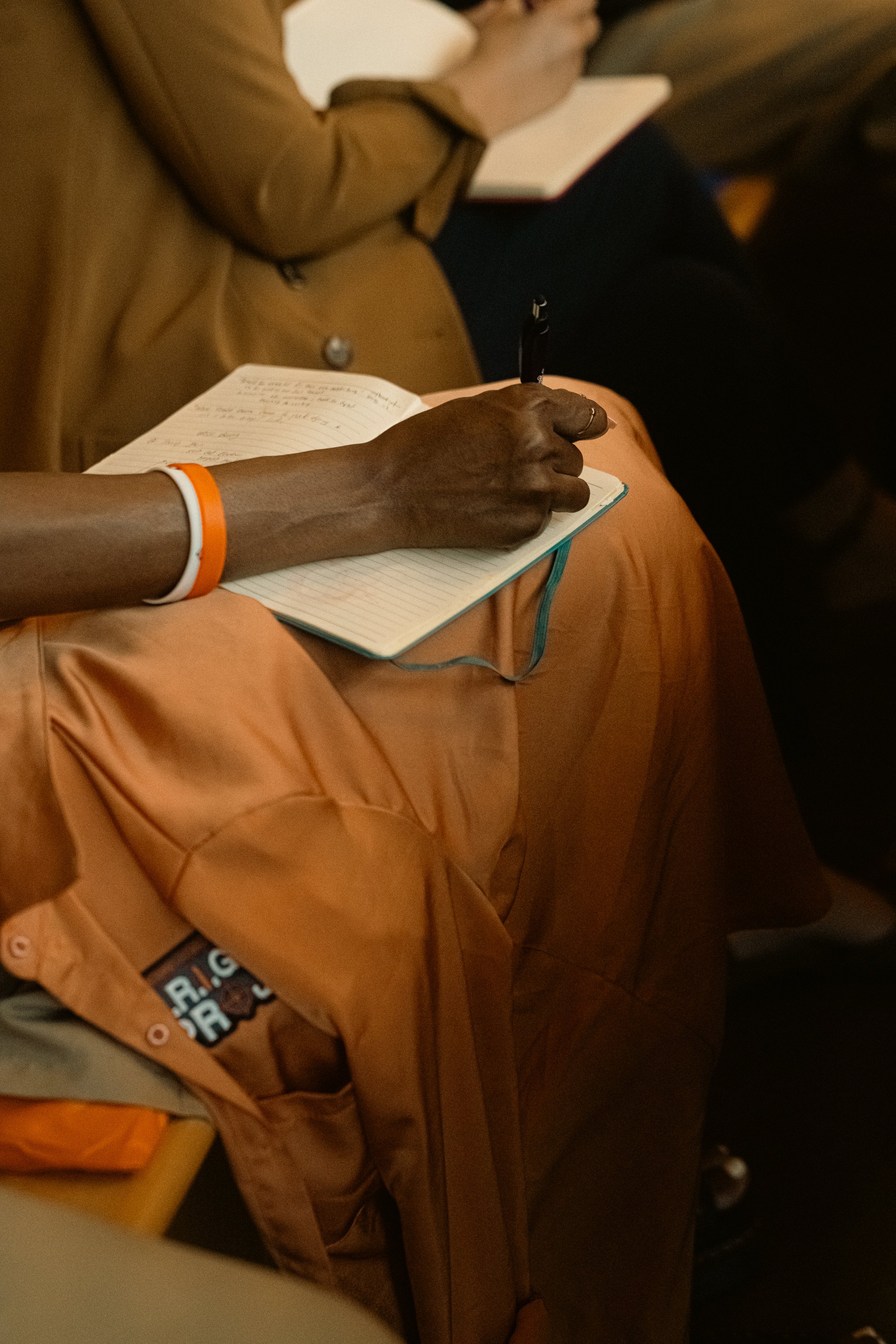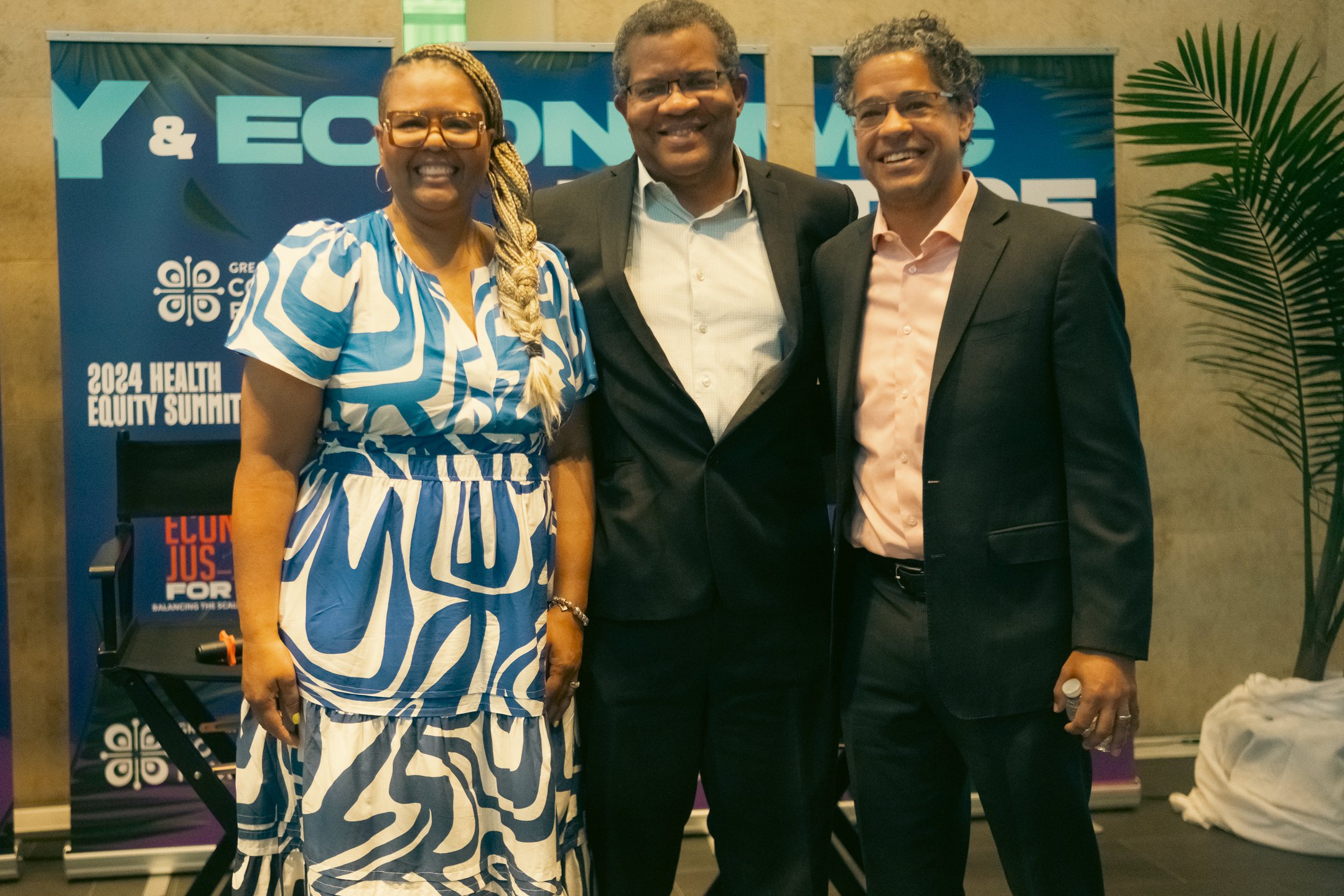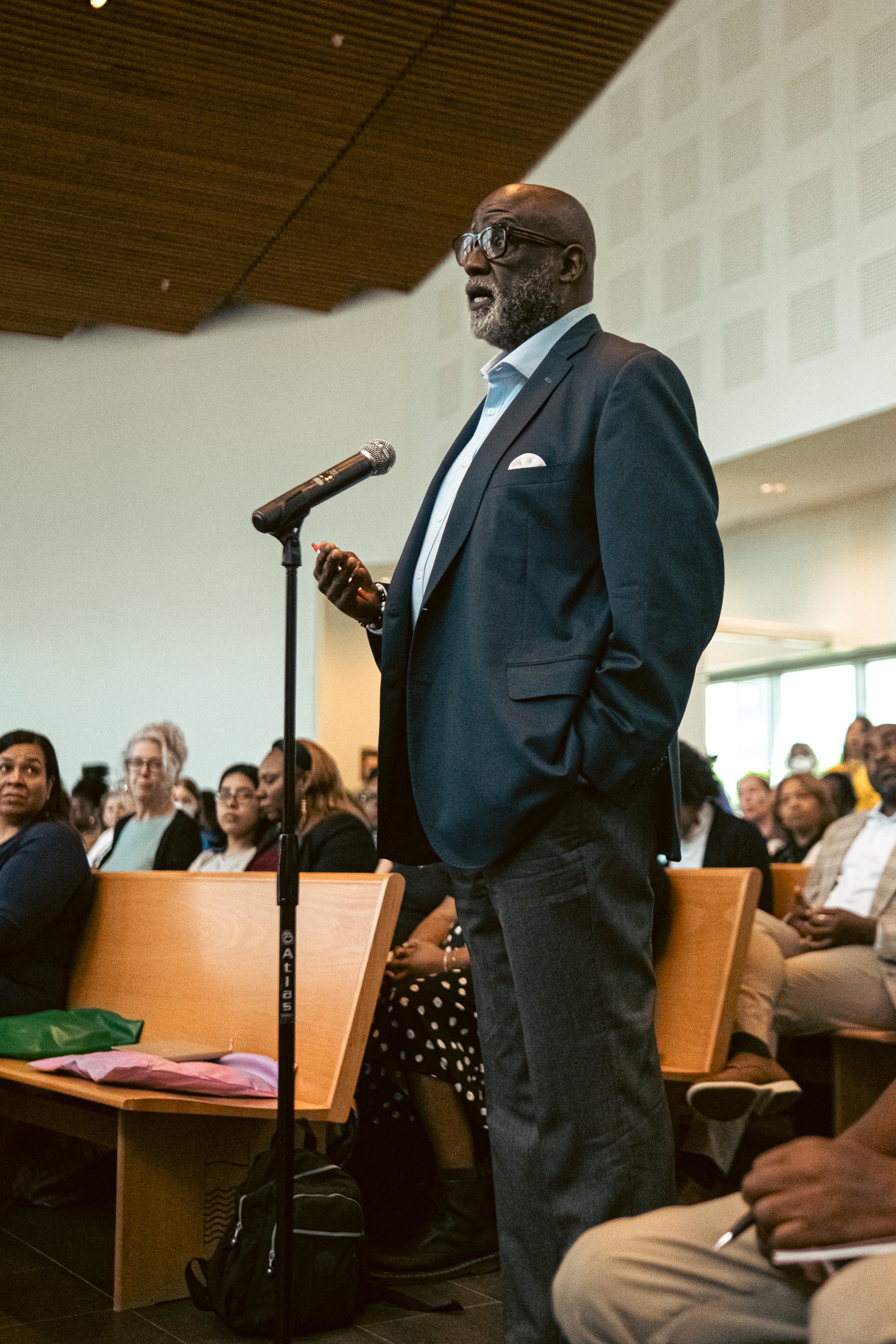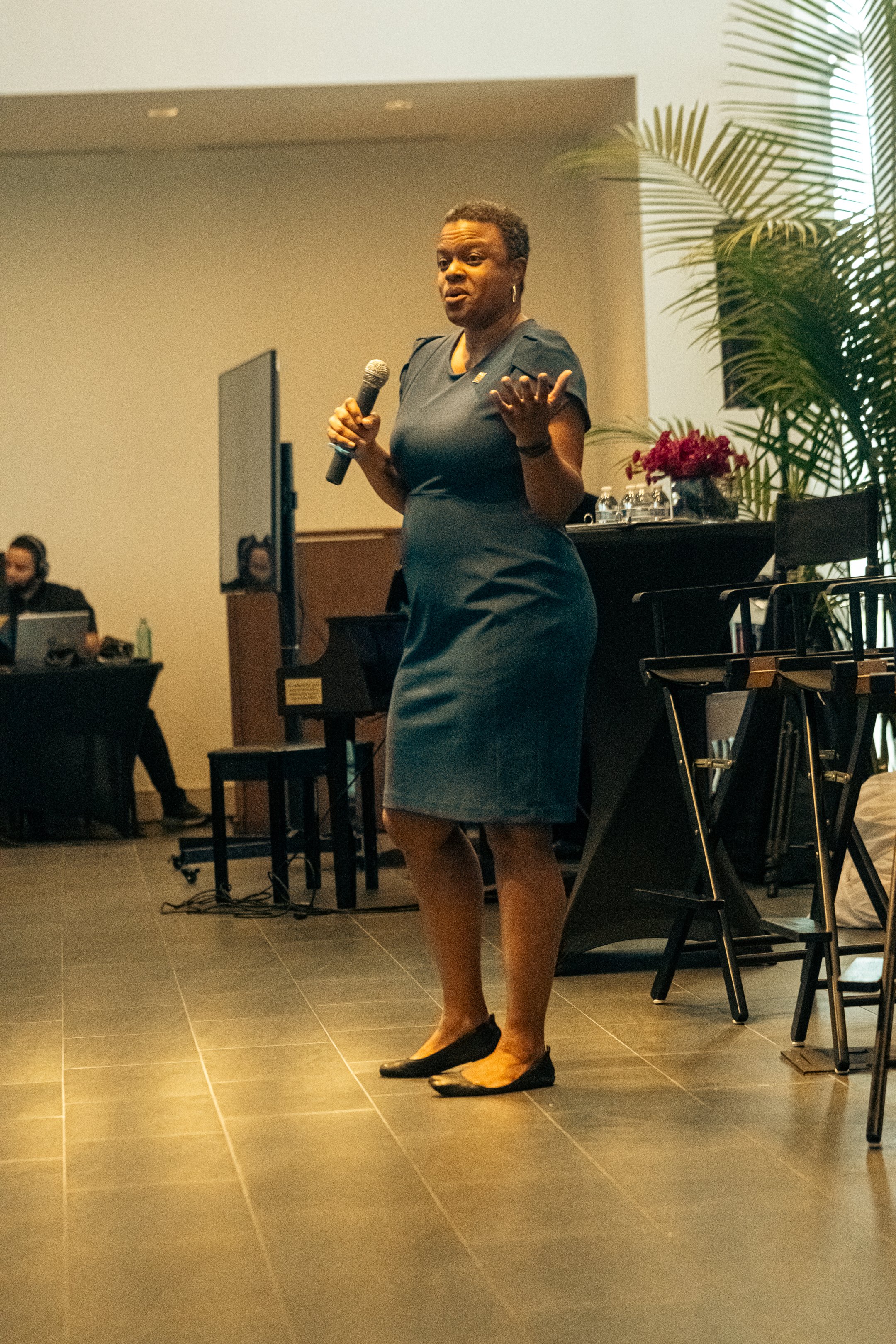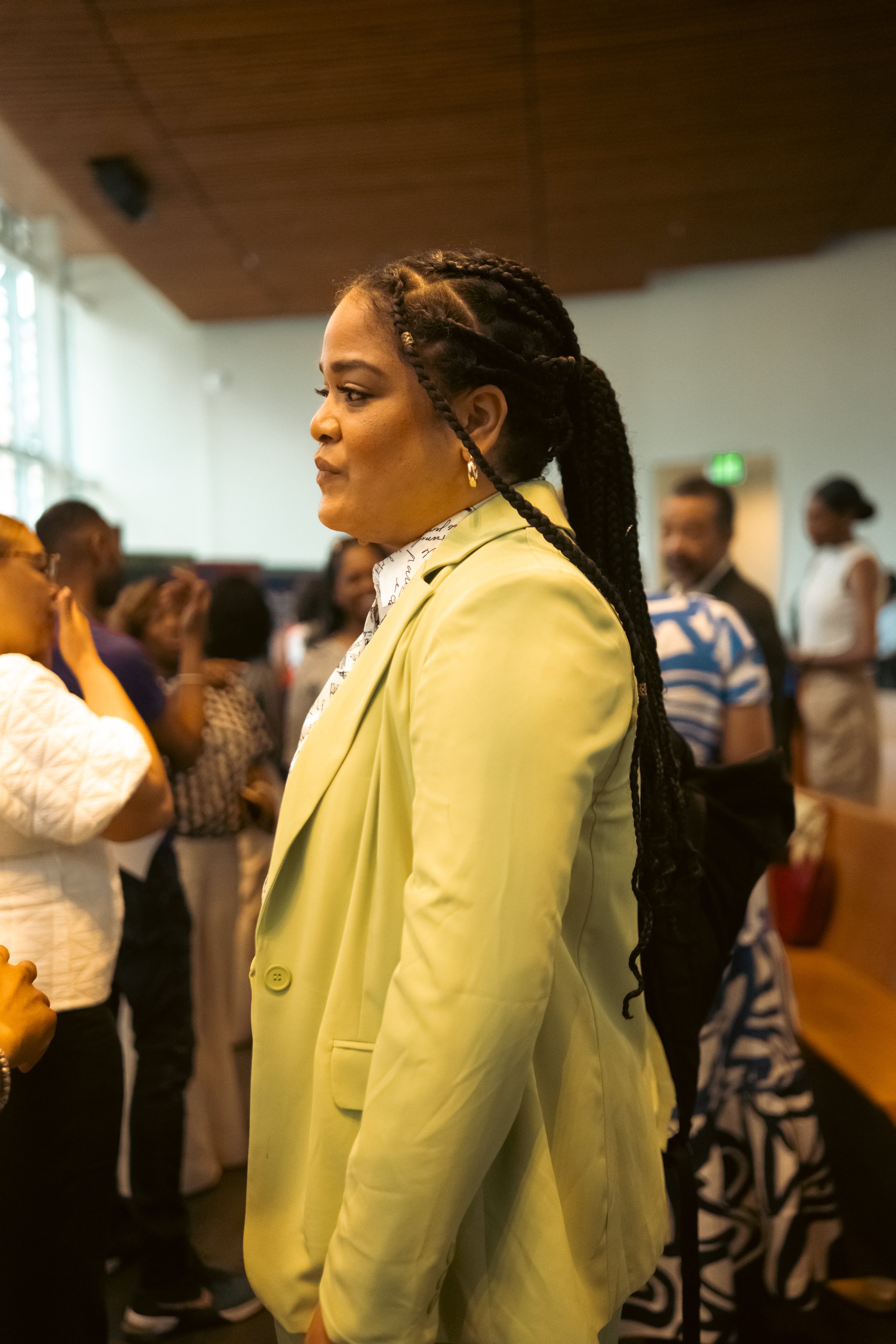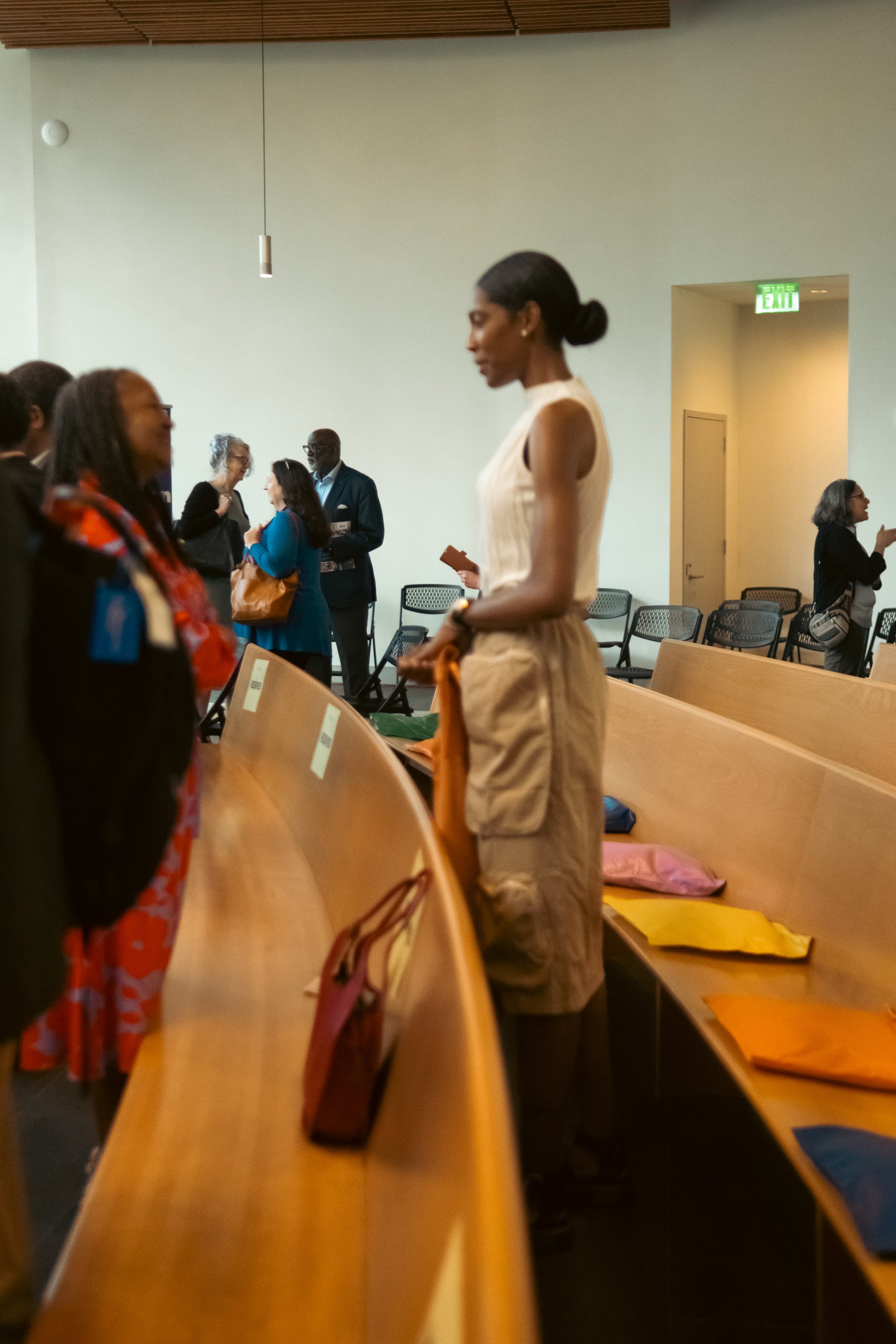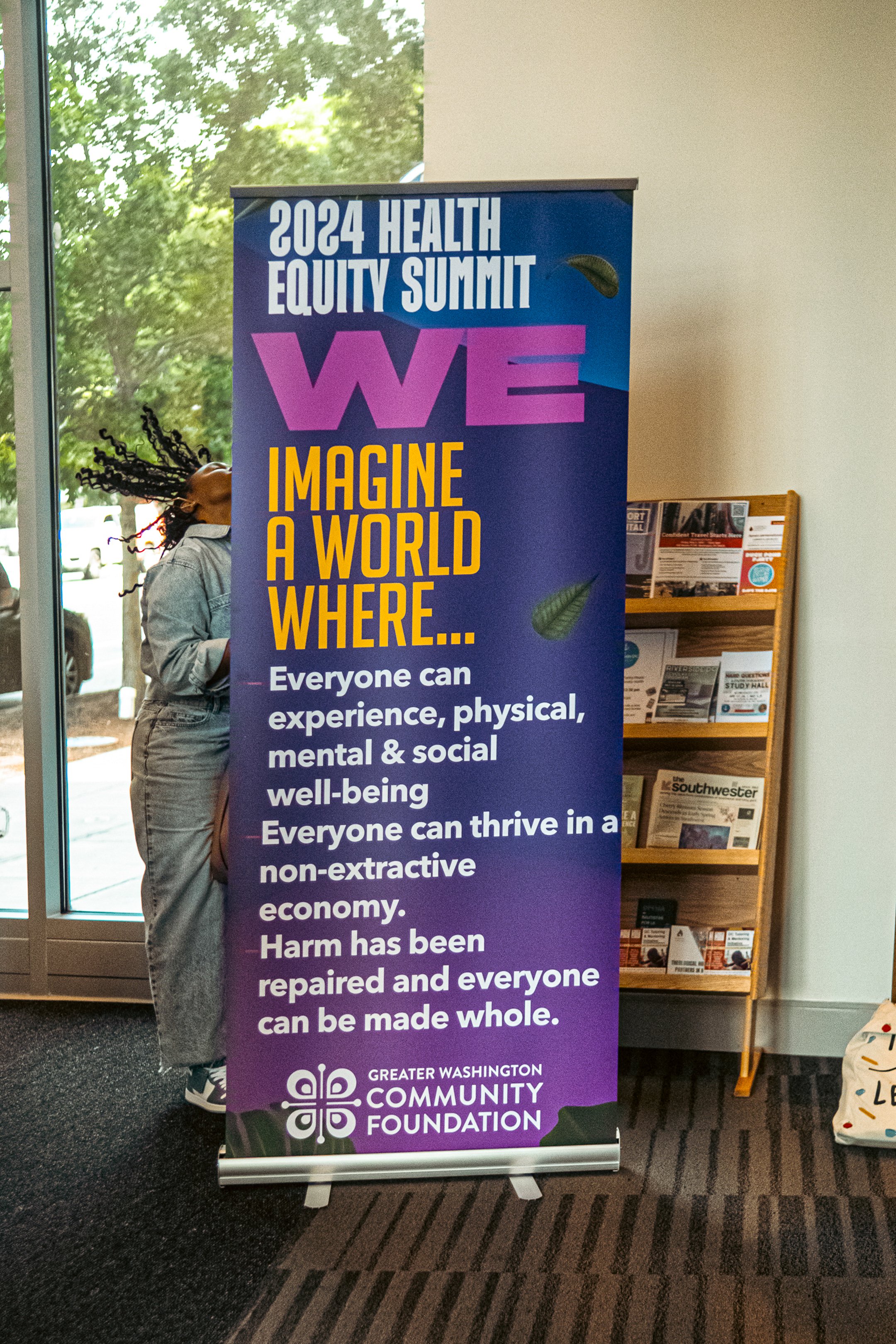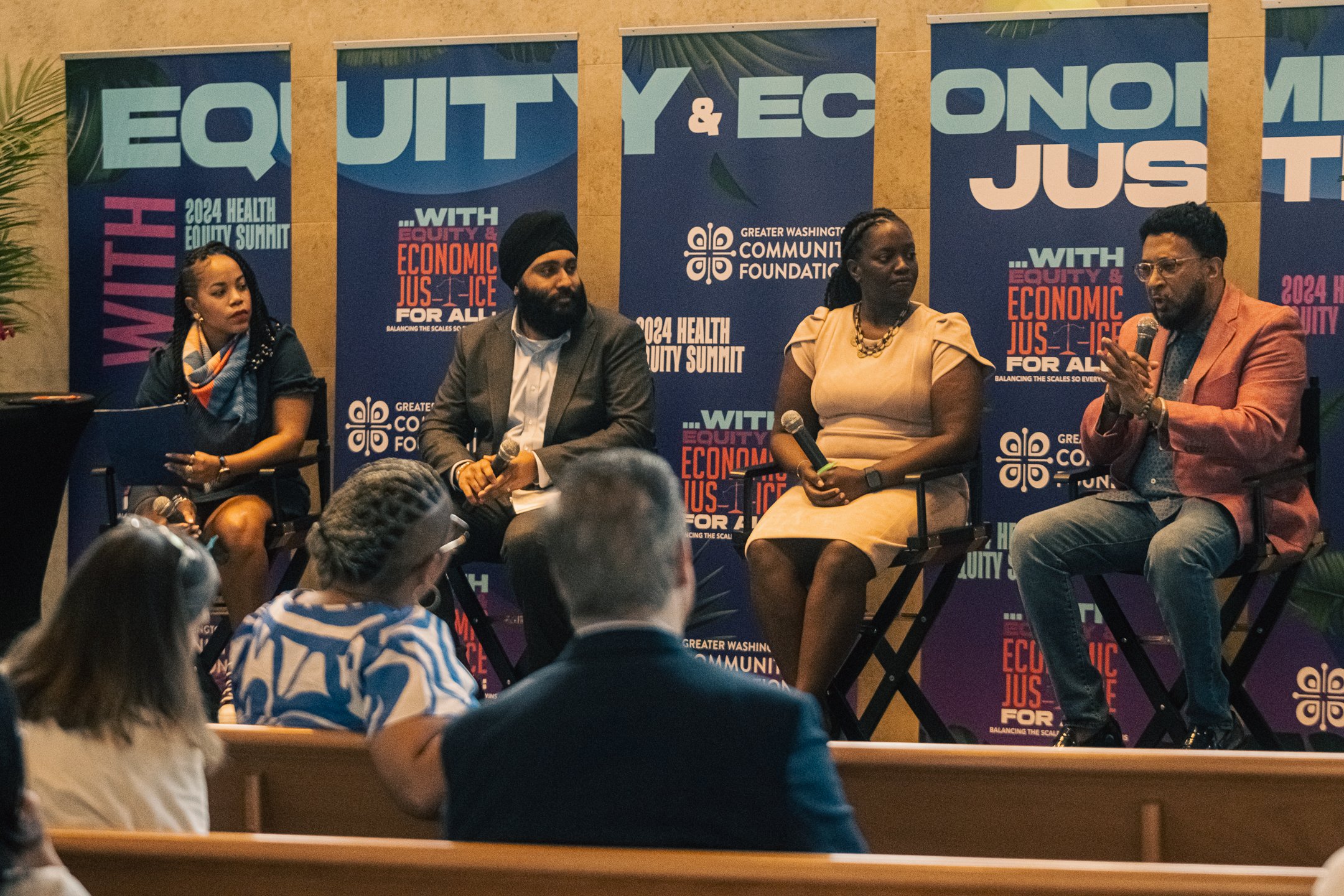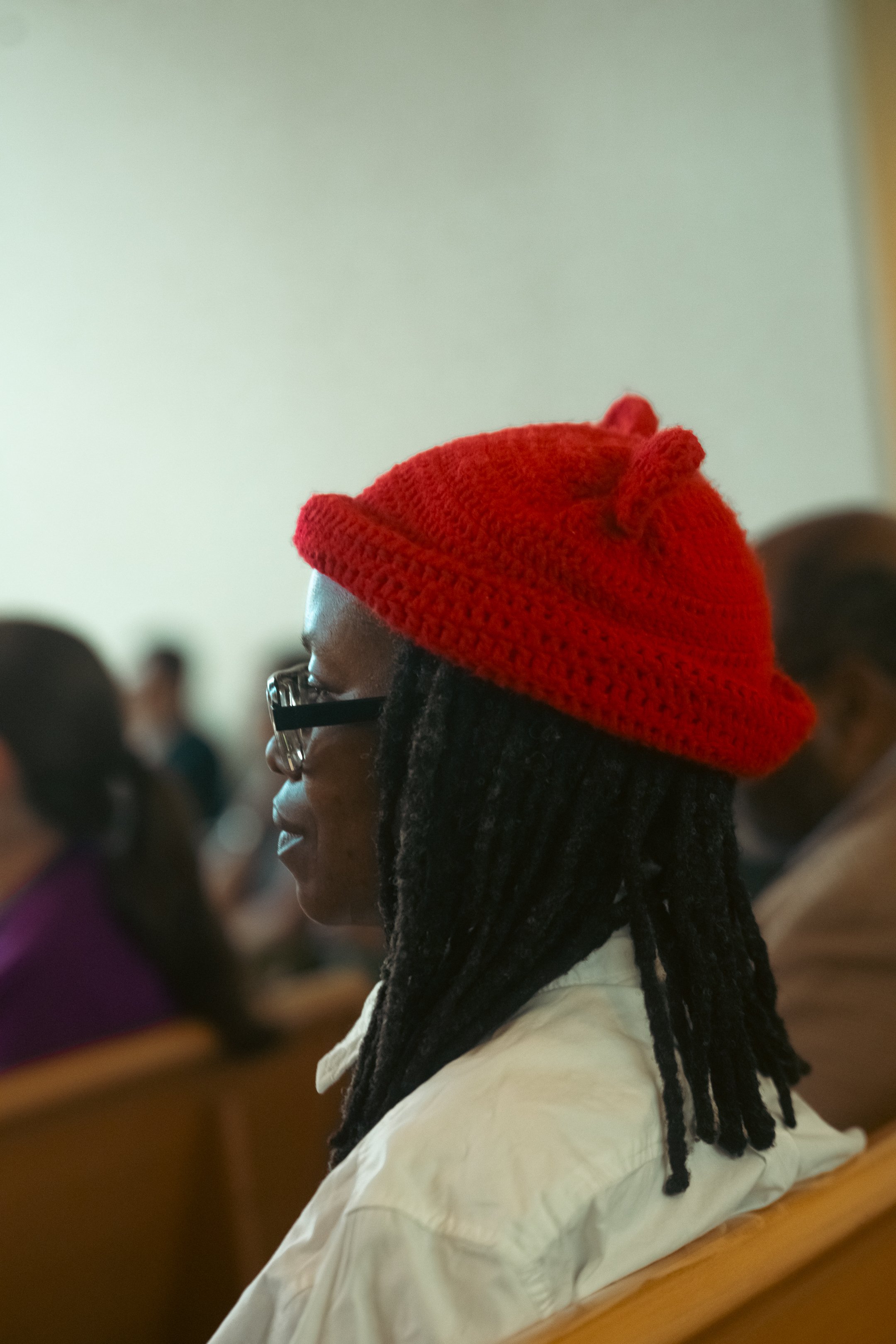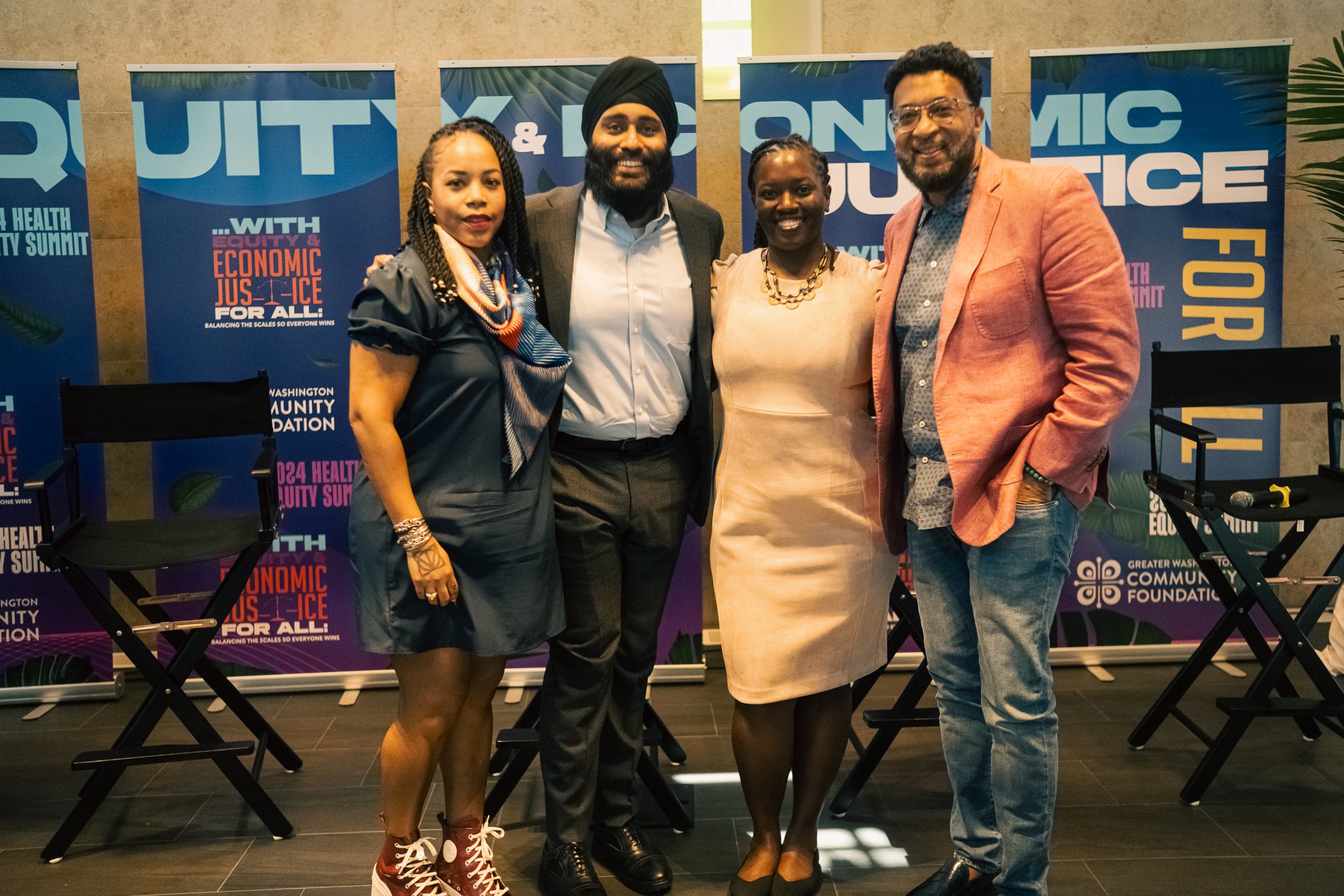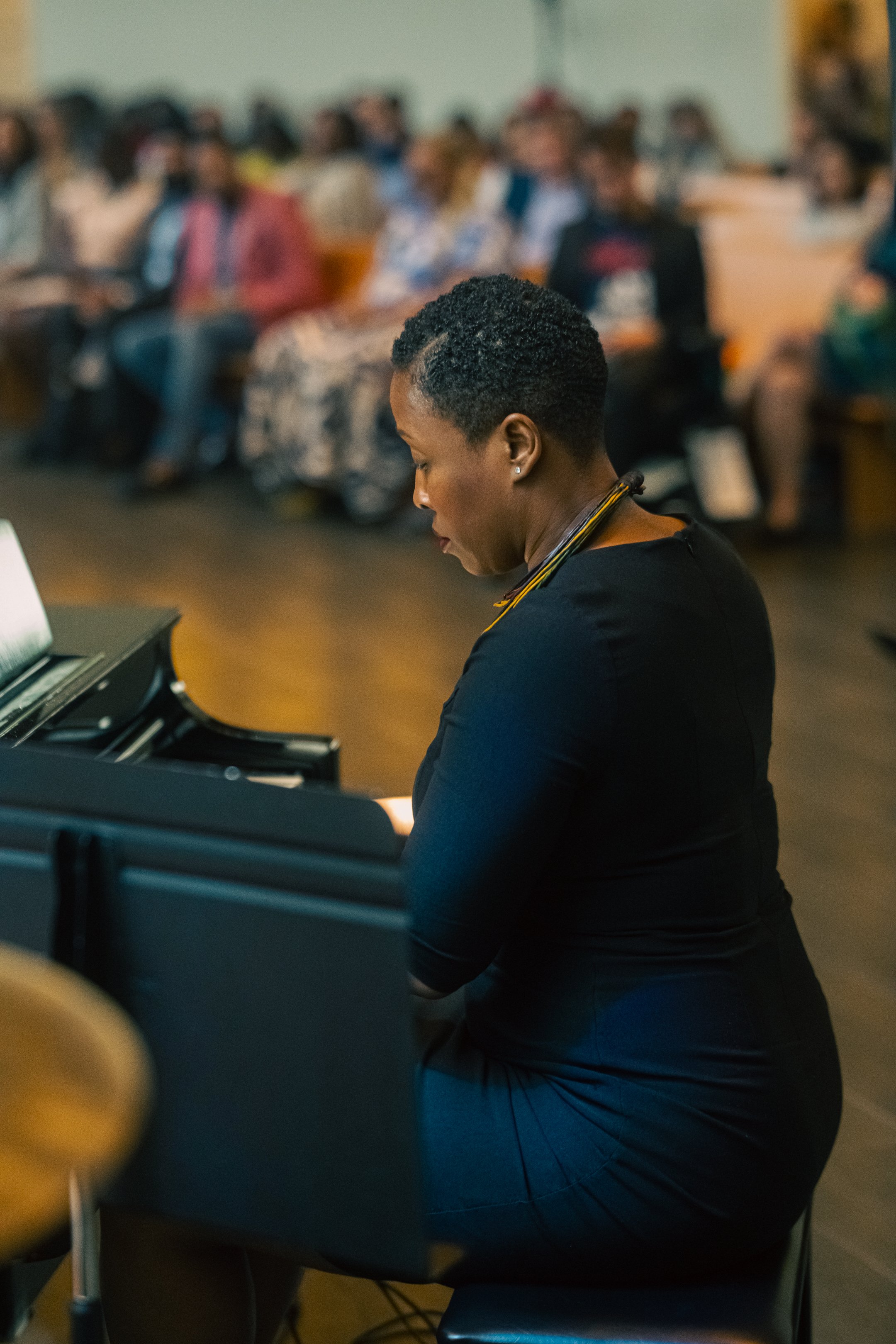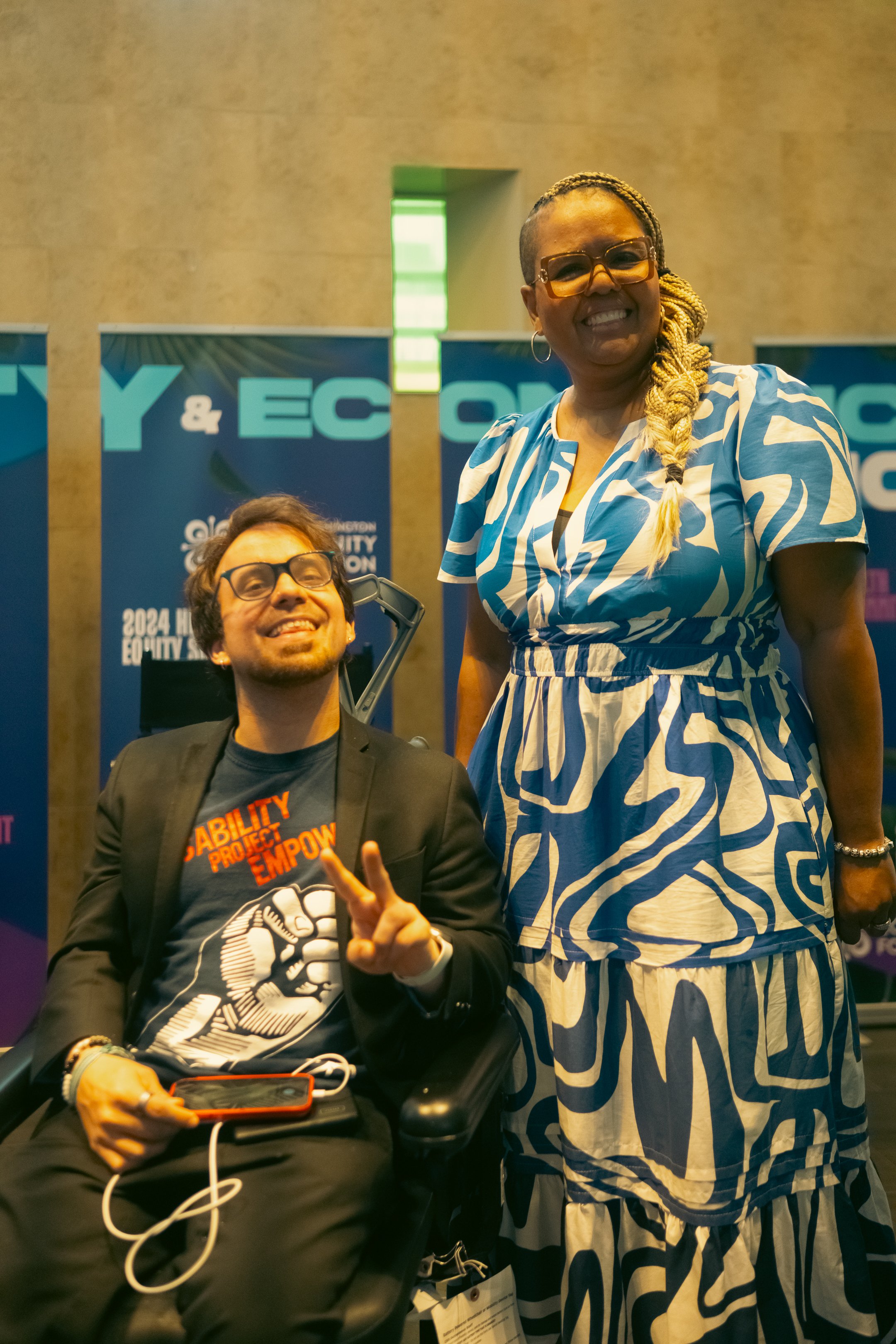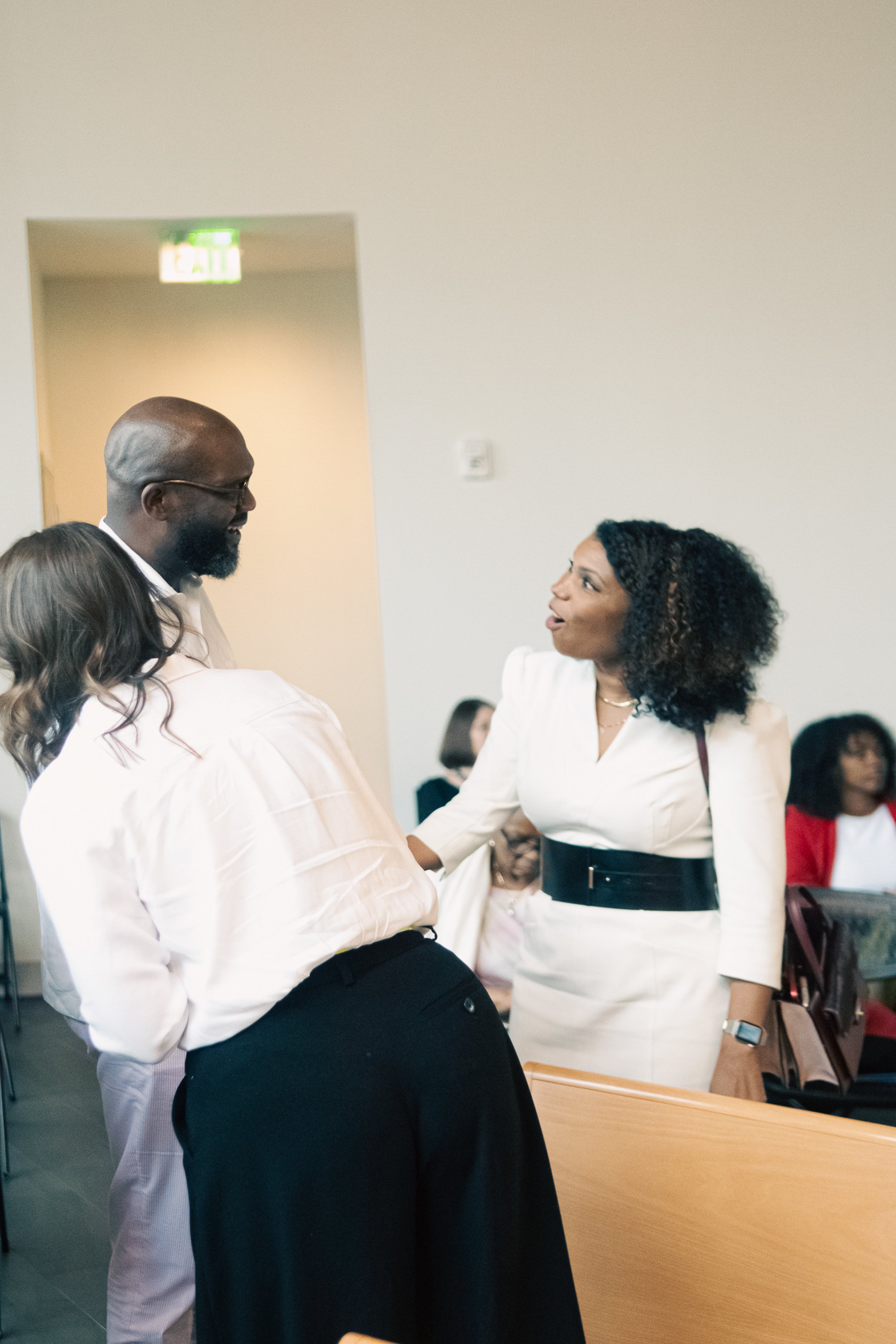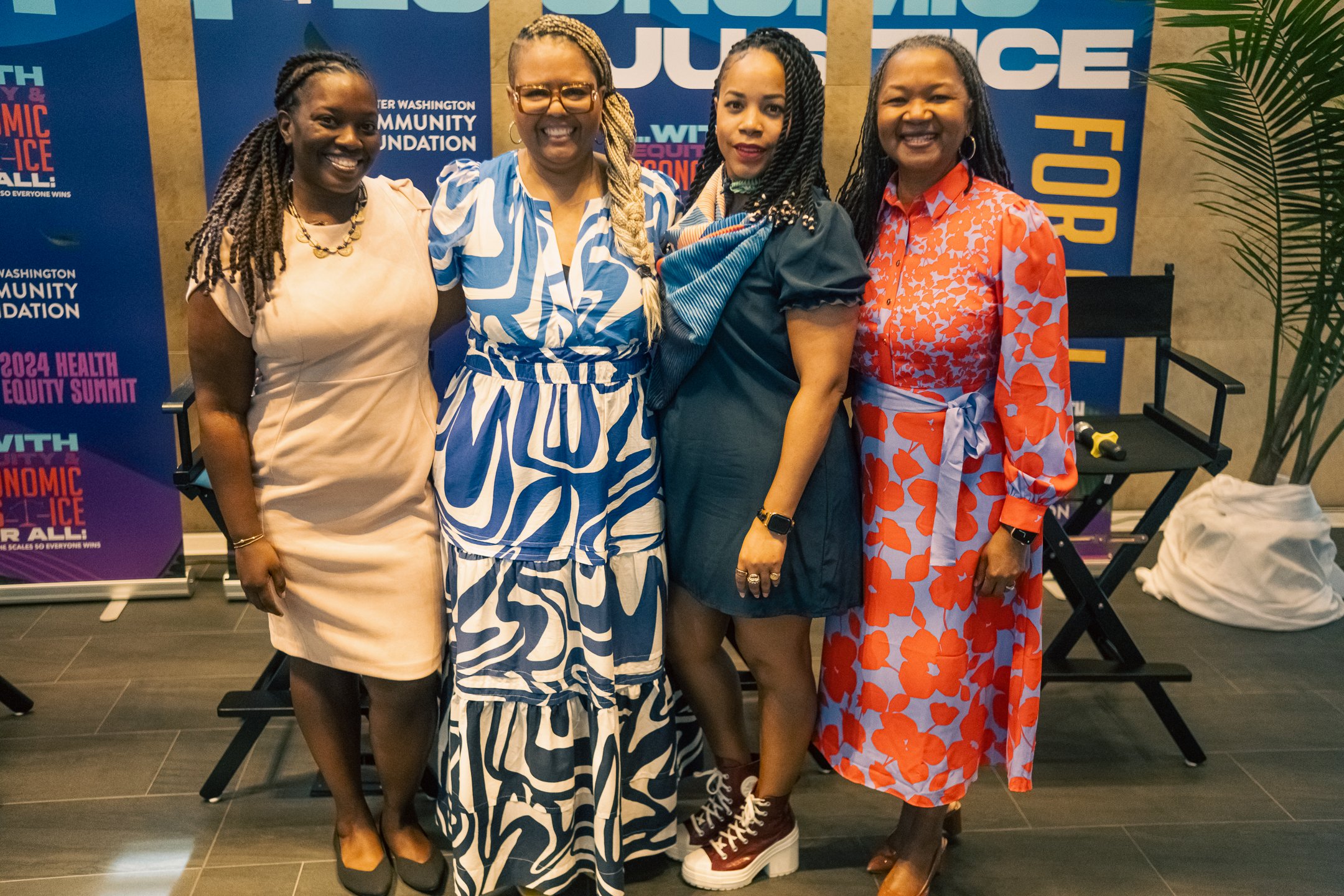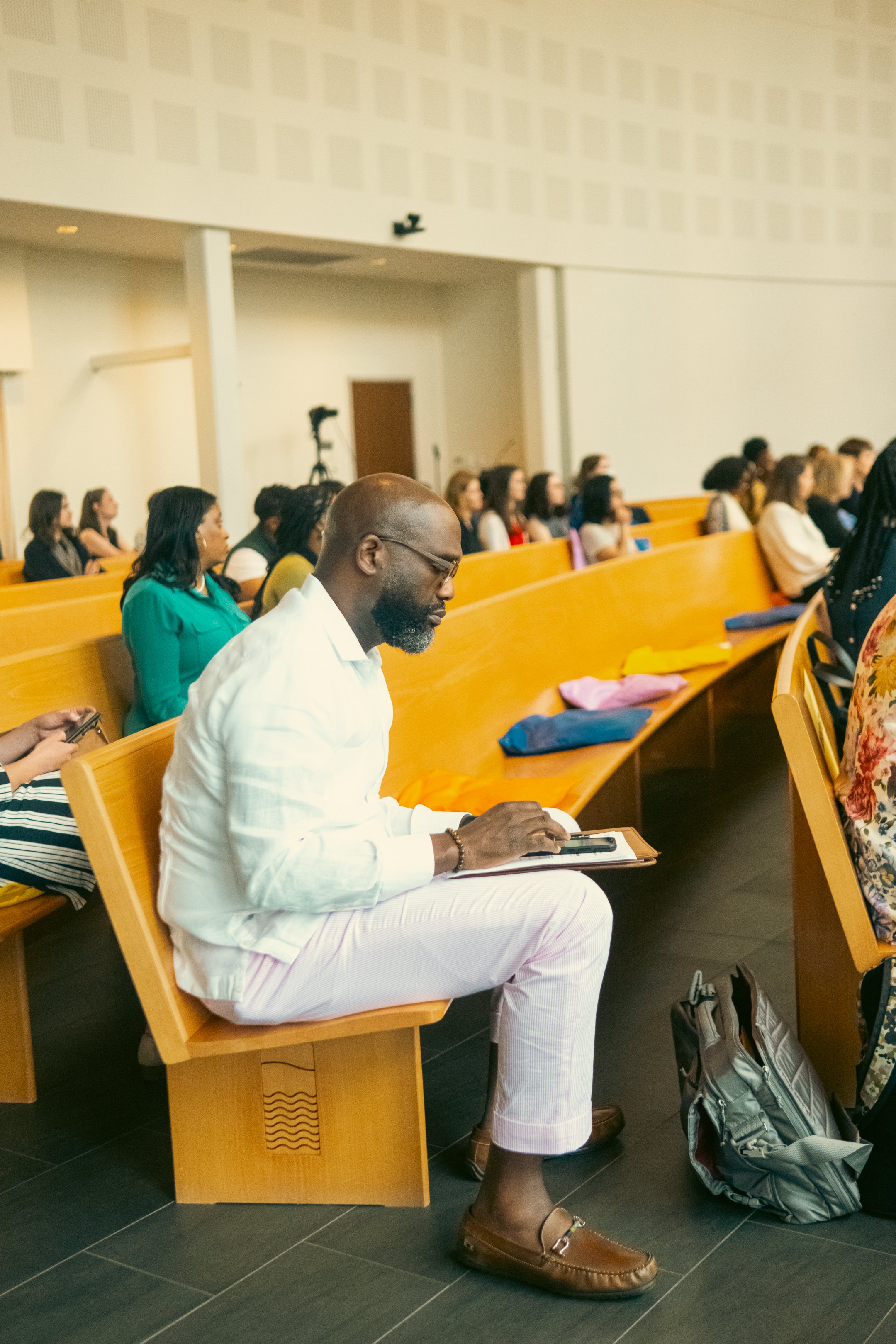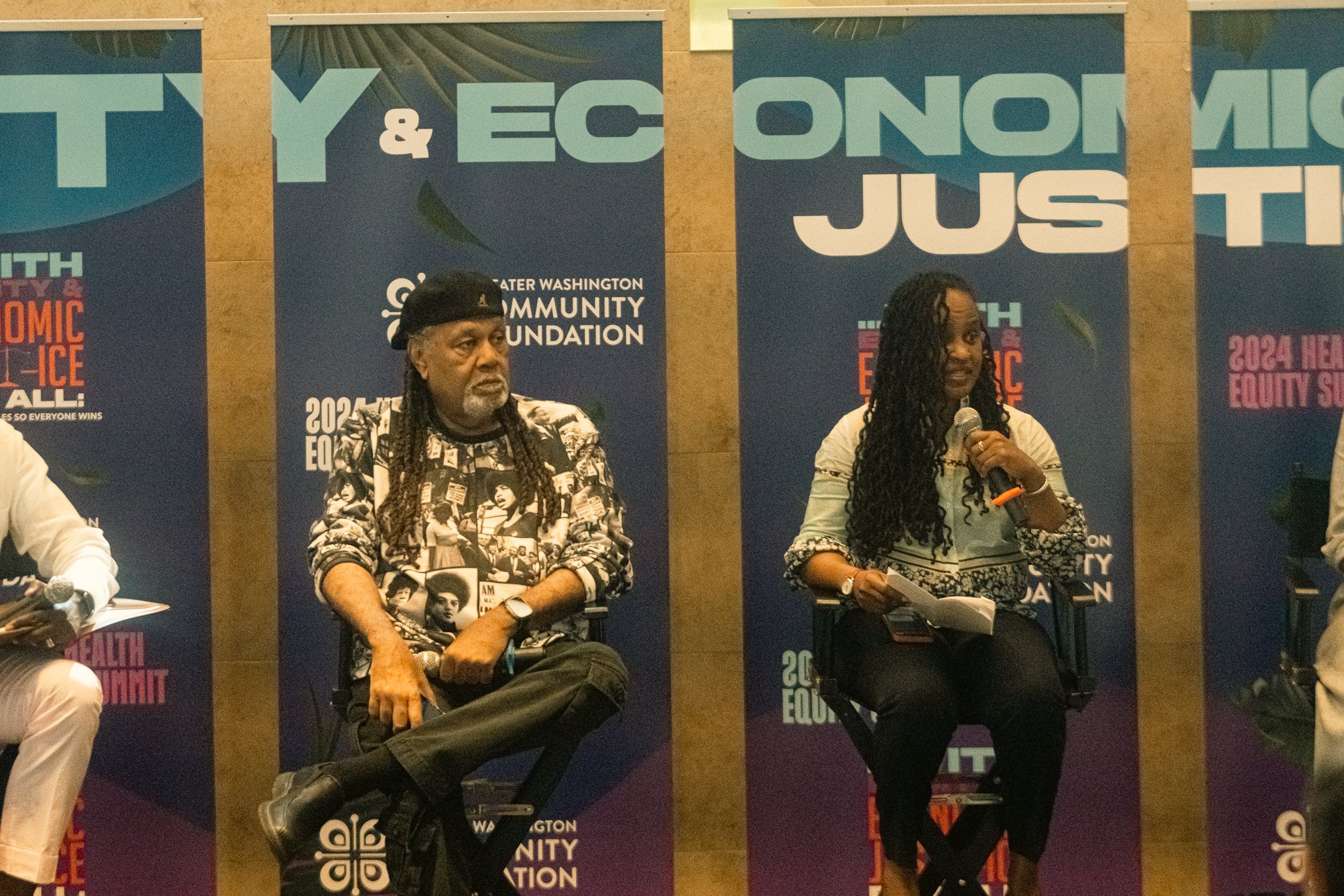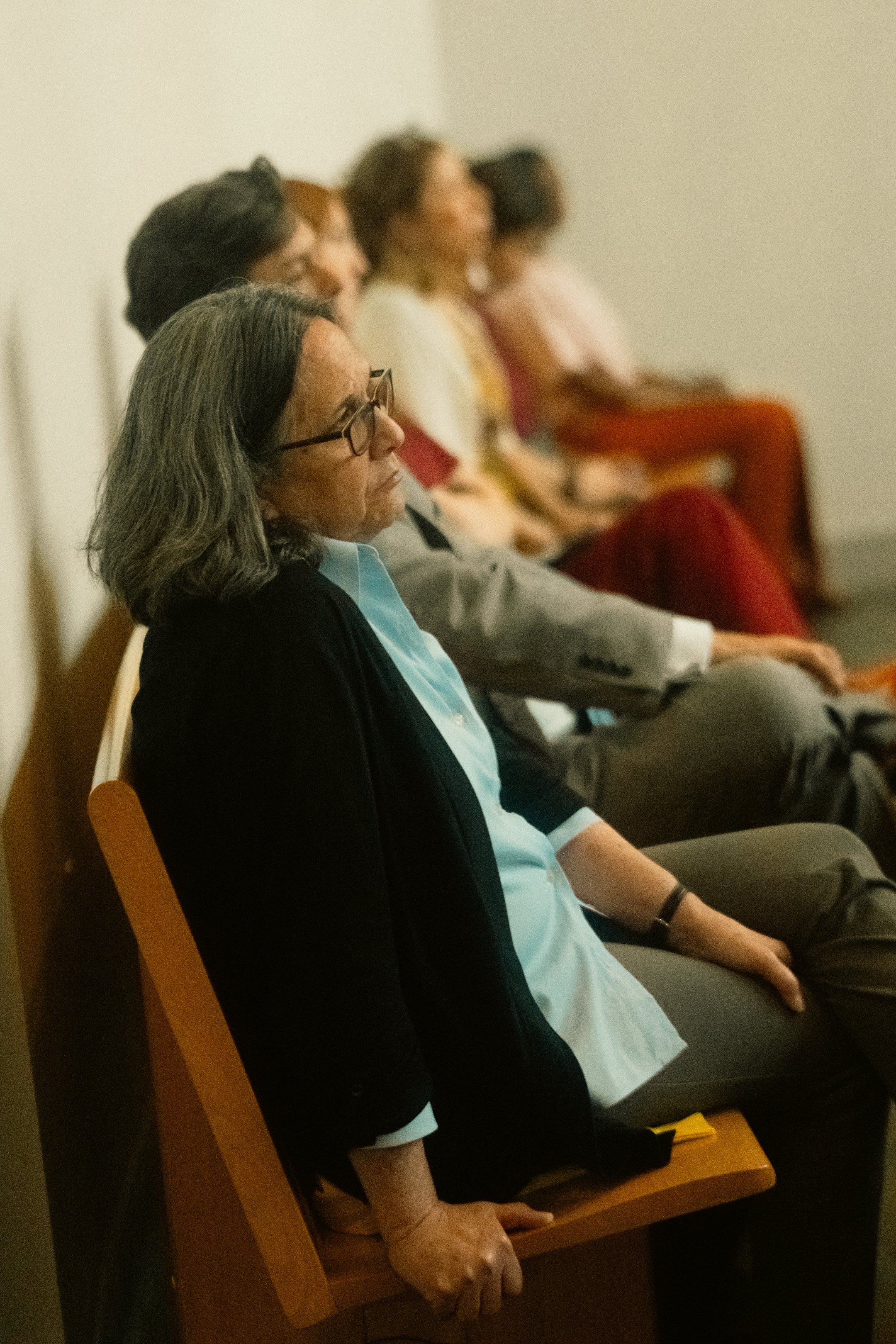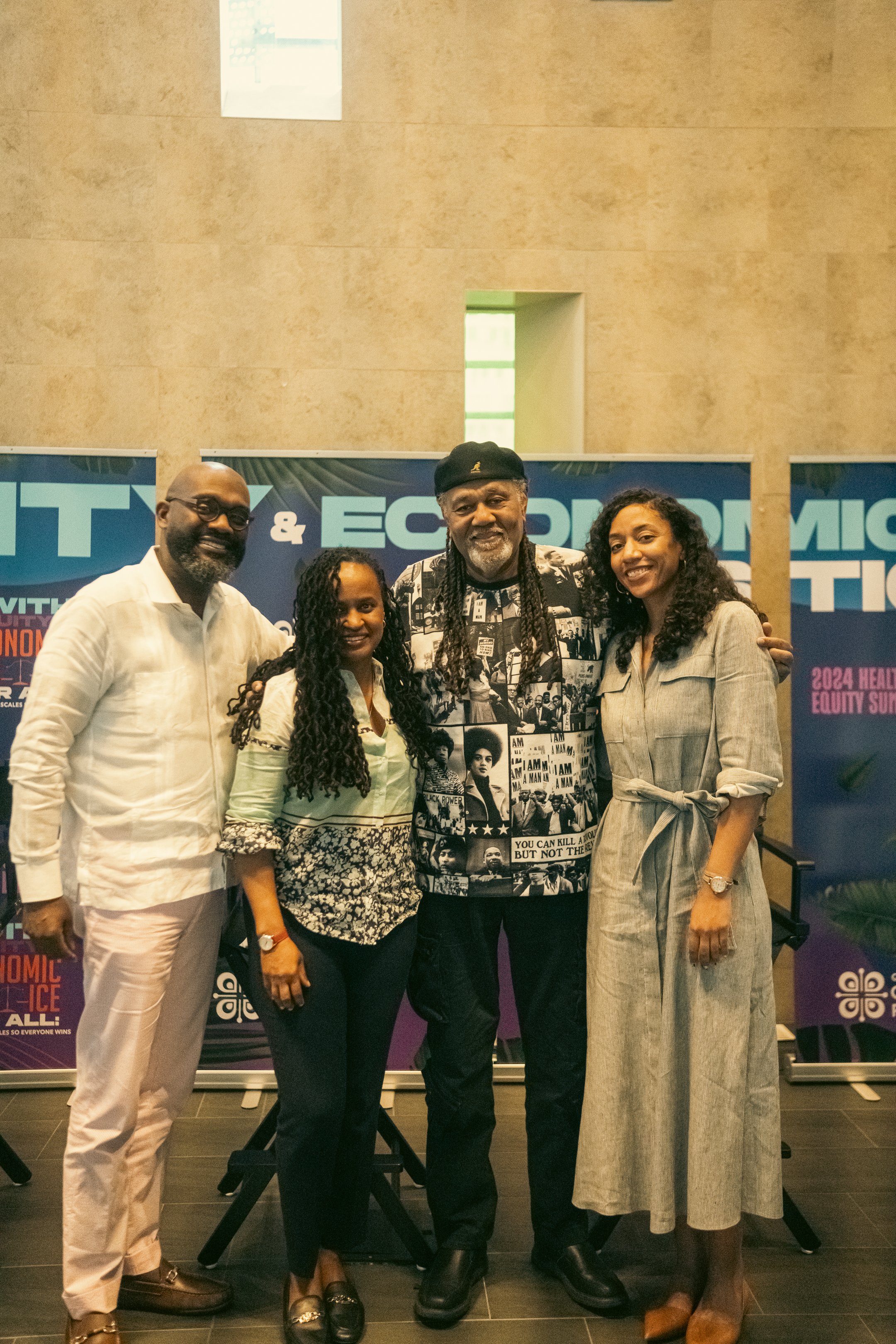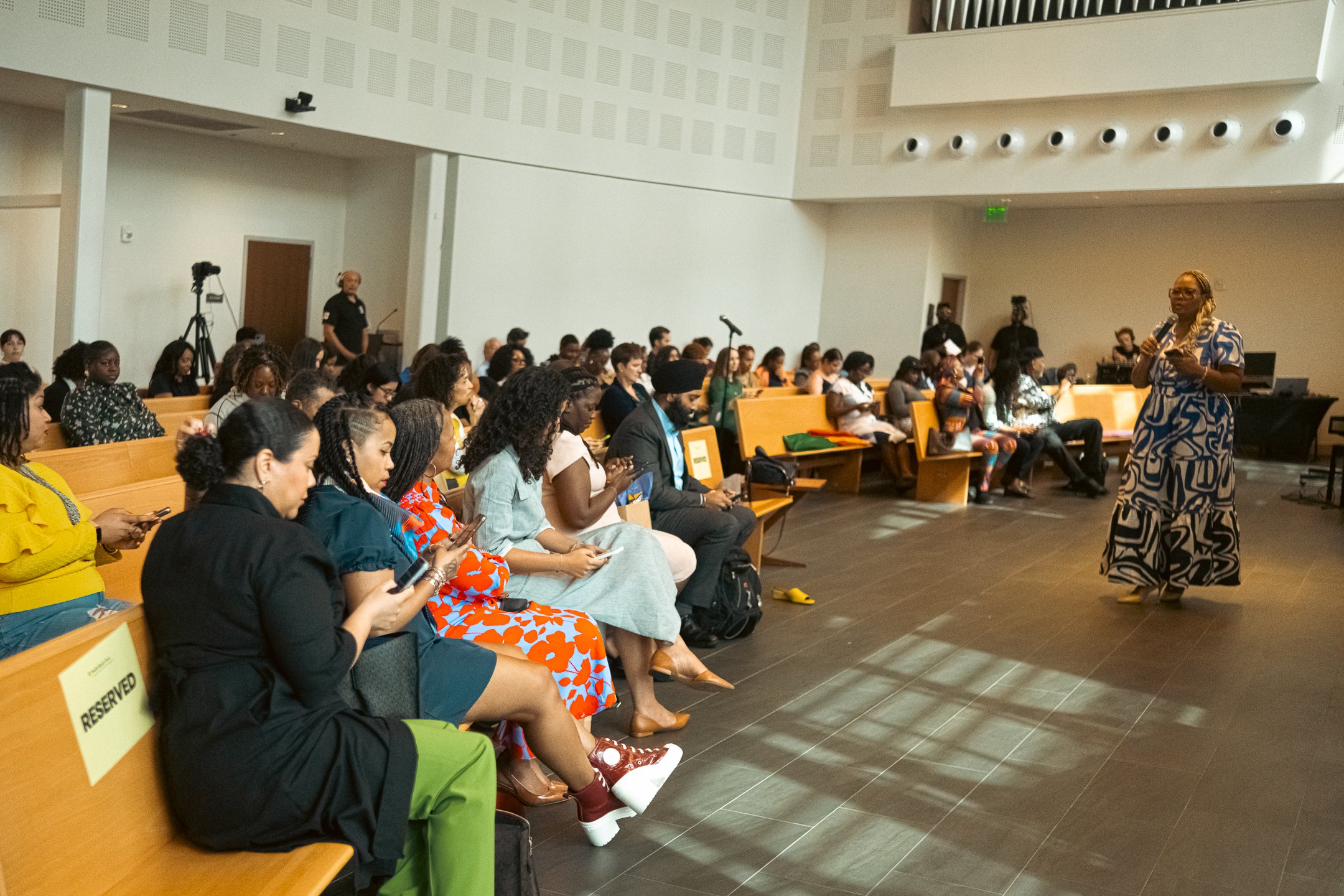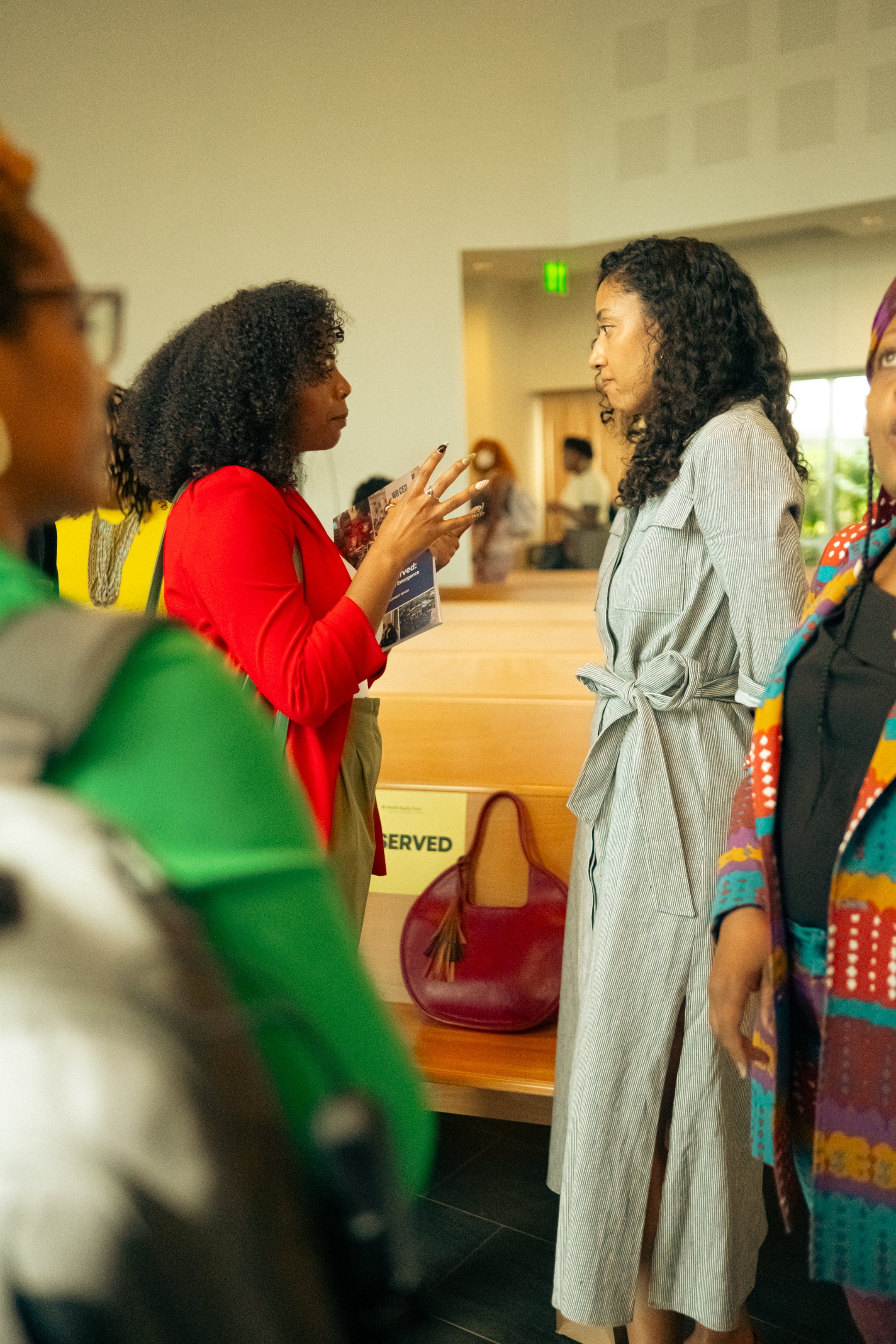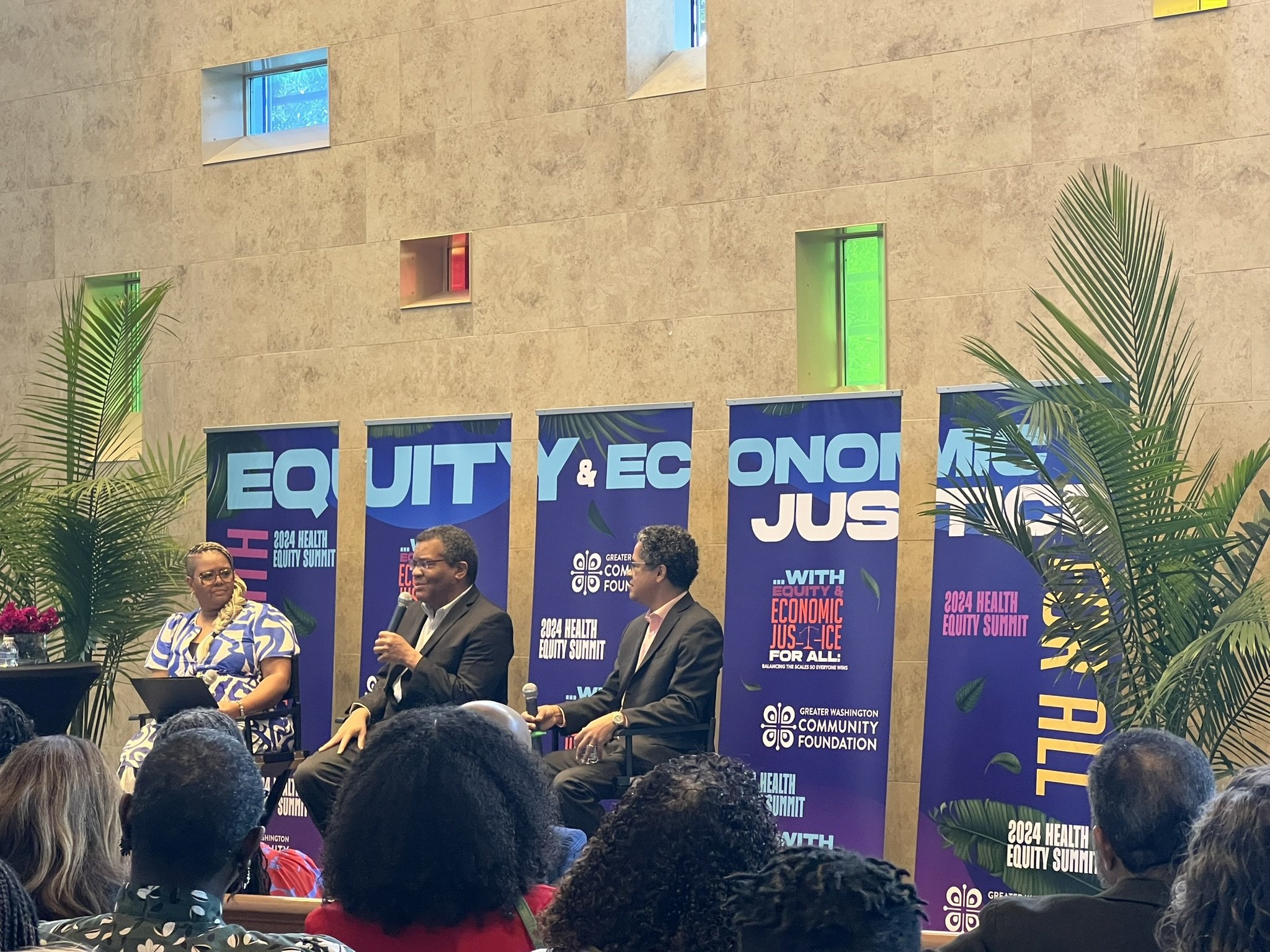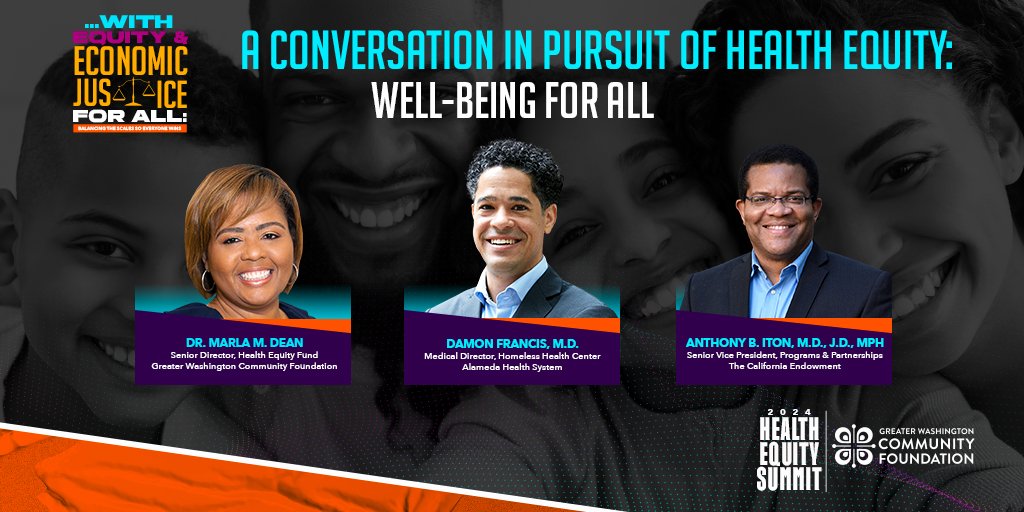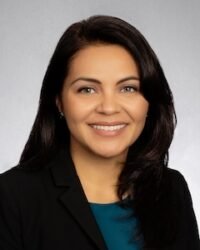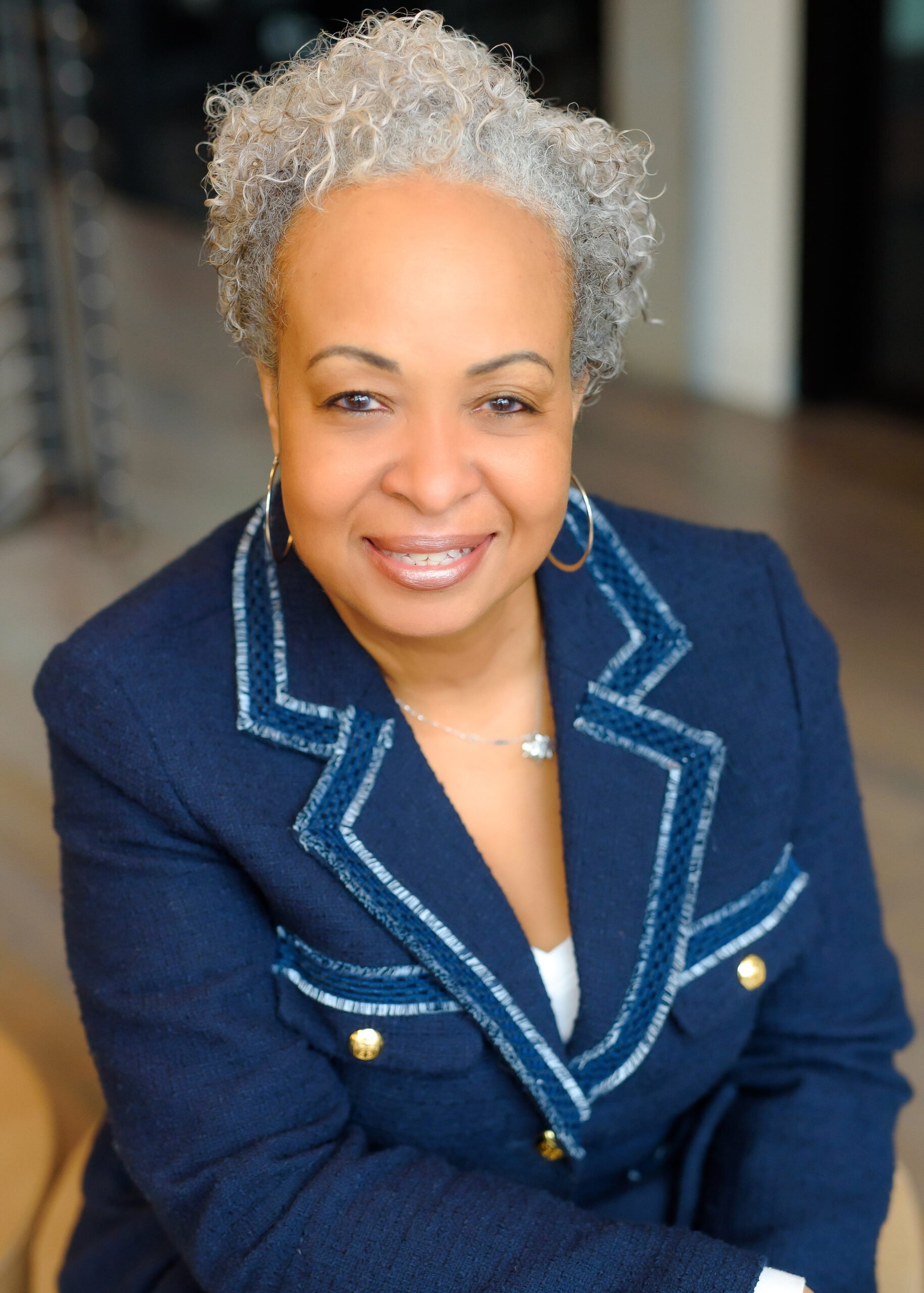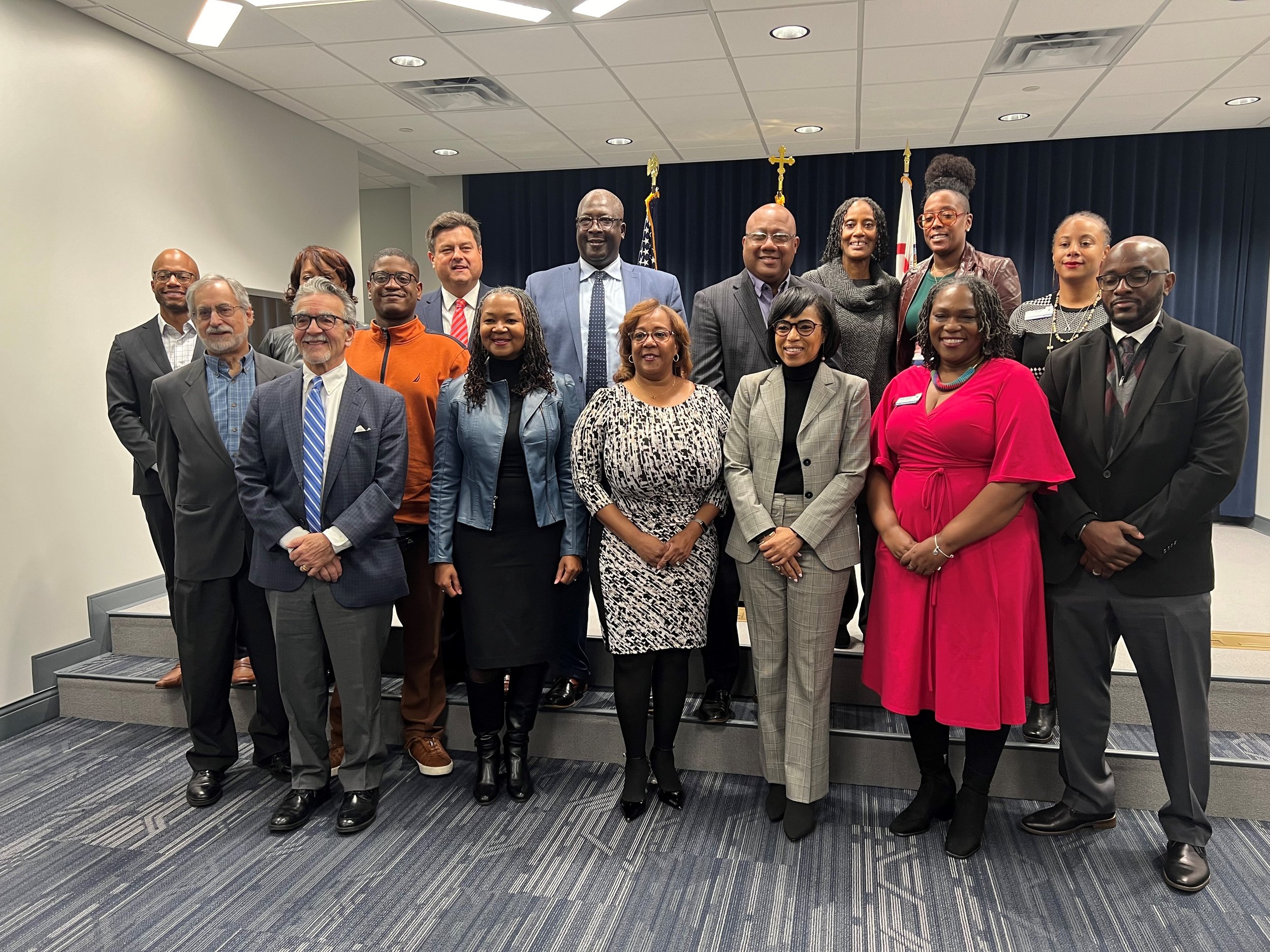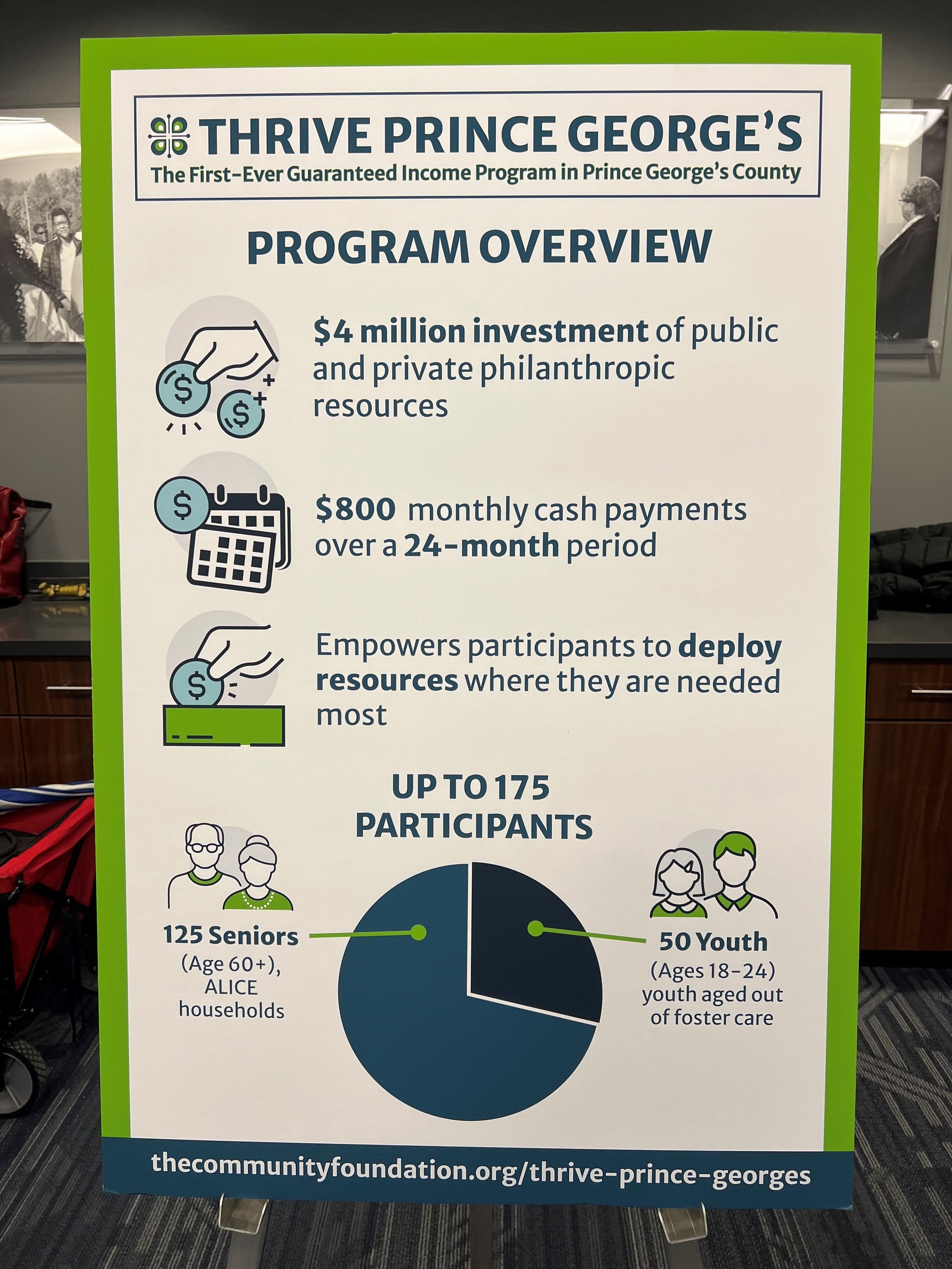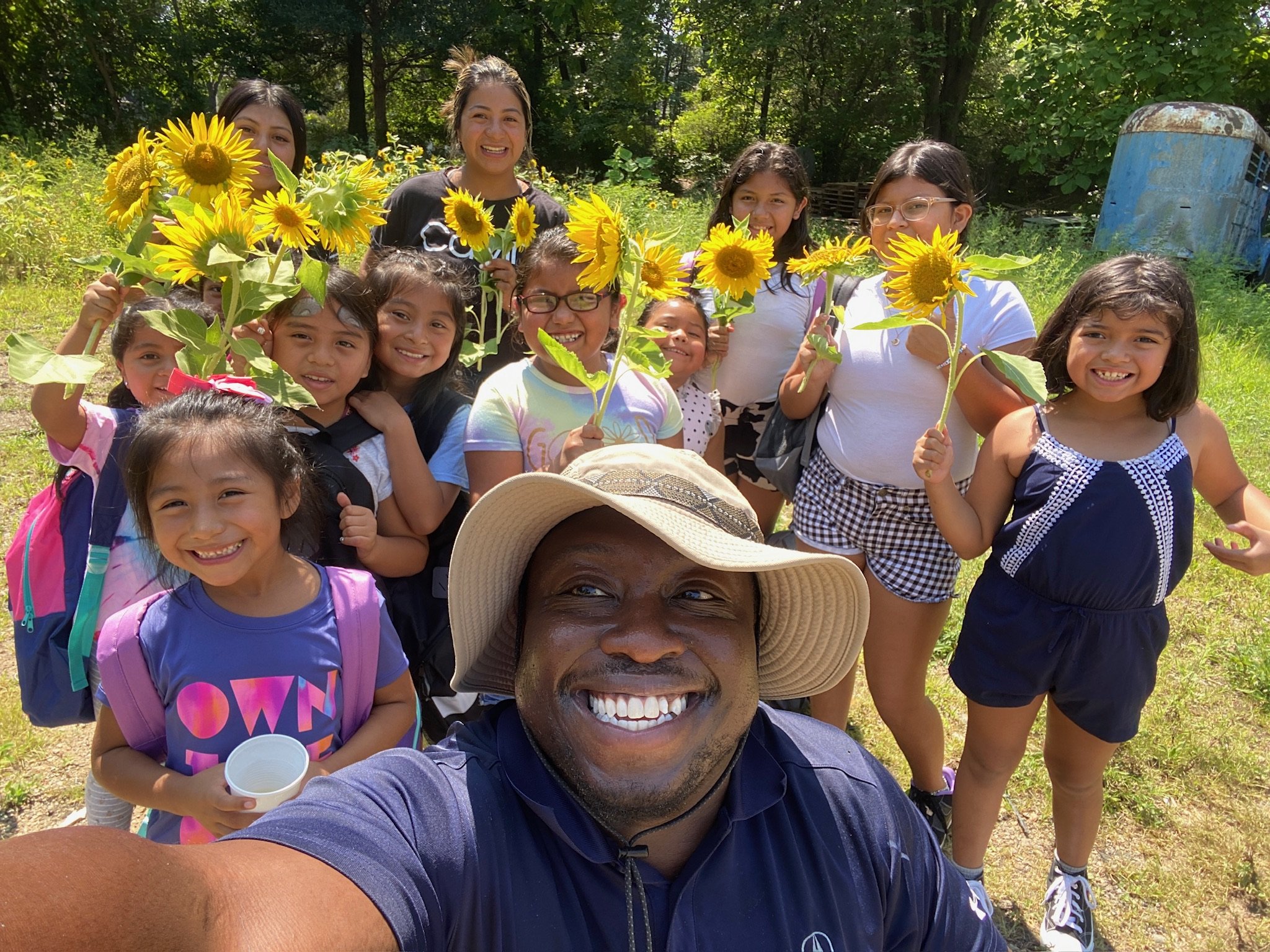On June 25, 2024, The Greater Washington Community Foundation held its second of three convenings on the subject of “An Agenda for Economic Justice in Prince George’s County.” Building on the discussion from the first convening, the gathering brought together community leaders and activists from across the region to advance the discussion about the social and economic future of Prince George’s County, and how we might curate a narrative that inspires our community to pursue economic justice together.
The Regional Racial Investment Gap – Diving into the Numbers
Over time, the stark level of chronic underinvestment of public and private dollars in Prince George’s County as compared to our neighbors has created a racial investment gap.
A recent study by the Urban Institute found that – across the region – neighborhoods with the highest percentages of Black and Latino residents received the lowest levels of public and private investment compared to neighborhoods with higher percentages of White residents.
The study found that, on average, households in Prince George’s County – which has historically been home to some of the highest concentrations of Black and an increasing number of Latino residents in the region -- received just $17,973 in investment per household – compared to households in Loudon County, VA that received nearly three times the amount of investment ($44,257) per household.
Of the nine jurisdictions from the DMV region included in the Urban Institute’s study, Prince George’s County received the lowest amount of investment.
The Six Pillars of an Economic Justice Agenda
The second convening was to spark conversation and glean insights that inform a new narrative supporting efforts to secure greater public-private investments for the county, close the racial investment gap, and advance the cause of economic justice.
New Narrative- Creating a story and vision that can inspire collaboration and aid the movement for economic justice.
People Power- Center around those in the county who are struggling the most.
Resource Development- Identifying, acquiring, and utilizing resources in a strategic manner to achieve specific goals or objectives.
Field Building- Identify resources and organizations that lead and advance economic justice work.
Disruption and Innovation- Pull and align funds to support disruptive and innovative projects.
Impact- Create a scoreboard that holds accountable our commitment and goals.
In the second convening, the group utilized a visioning approach called “Transformative Scenario Planning” – a globally recognized and utilized approach that helps communities reflect on the current state of a problem they are facing, name multiple visions for their future together, and choose a preferred vision for a future that requires collaboration and collective action.
Participants were organized into break-out rooms to discuss one of three topics that are central to the work of framing a new narrative: economic justice, economic identity, and social identity.
Economic Justice as a Process and Outcome
“Justice will take a long time to turn around, it is not an overnight process, and the foundation is what matters.”- Michael A. Echols, Prince George’s County Chair
This break-out room discussed whether Prince George’s County is prepared to pursue an economic justice agenda, and what critical factors should be considered in crafting a narrative for the County’s success.
The conversation touched on several controversial aspects that must first be addressed, such as the role of institutions (education, government, and corporations) and ways that they may have contributed to the economic injustice and disparities we see in the County.
The group also explored whether Prince George’s County is ready to aggressively name and confront those who have created the injustices that residents are contending with in their communities.
Participants recognized that these questions are particularly relevant and must be courageously addressed, considering the County’s traditionally moderate political identity has been prevalent over the course of its history.
The group generated four important key takeaways from the conversation:
Action-Oriented Approach: Emphasis should be placed on taking action to disrupt and dismantle practices that produce to economic injustice.
Long-Term Perspective: Acknowledging that achieving economic justice is a gradual process that requires sustained effort and commitment over time.
Community Engagement: It is necessary to advocate for community involvement and innovation to drive positive change.
Challenges and Considerations: Identify potential backlash, vulnerabilities, and threats that may arise from implementing economic justice initiatives.
Economic Identity
The second break-out room discussed four potential economic futures for Prince George’s County's and how they might impact possibilities for economic justice and shared prosperity.
Summaries of the four futures they considered included:
Stay the Course: “If it ain’t broke, don’t fix it.” This approach involves a continuation of the vision and strategies that have made Prince George’s the County it is today.
What’s Trending: This approach involves adopting best practices for economic progress and development that are being implemented in other jurisdictions—i.e. transit oriented development, tax abatements, competing for large corporate and institutional employers, and job creation.
The Market Decides: This approach advocates against efforts to unduly influence or predetermine the County’s economic future-instead opting to rely on the market to decide the best path for Prince George’s County.
Quantum Leap: This approach suggests that people are ready to pursue big ideas and a big vision for the future and includes reinventing and reimagining the economy so that it produces shared prosperity for everyone.
When asked about the best strategic course for investment, participants rejected the status quo, i.e. staying the course, and instead pushed for a bold, new approach (Quantum Leap) that sets the tone for the pursuit of economic justice.
Participants expressed interest in leveraging emerging trends and market dynamics in sectors like quantum computing and research and development—but also acknowledged the need for additional investment to prepare the existing infrastructure and workforce for this great “leap” forward.
Key points that emerged included the sustainability of current economic strategies and the readiness to embrace this specific change. There was also debate over the impact of demographic shifts, economic competitiveness with neighboring counties, and the adequacy of local services like education and healthcare.
The dialog during this break-out session yielded three main points:
Strategic Priorities: Identifying and capitalizing on market trends to drive economic success, such as the resurgence of the U.S. electronic chip manufacturing, cautioning though that the County may not have the workforce to support this manufacturing initiative.
Identify Roadblocks and Threats: Issues like the lack of resources in schools and the healthcare system, increased tax rates, risk that comes with persistent economic disparity compared to neighboring jurisdictions. These challenges will require collaborative efforts and political will to be effectively addressed.
New Narrative Proposals: The need for messaging that redefines Prince George’s County in ways that attract investment, promote local talent, and build generational wealth within the community.
Social Identity
The topic of the third break-out room revolved around selecting and prioritizing a scenario related to the social identity of Prince George’s County. Each scenario highlighted possibilities for how people in the county foresee their relationships with each other, and how they will relate to their peers in the region and around the nation.
This group was tasked with carefully evaluating and ranking the three following scenarios:
A Tale of 2 Cities: An approach that emphasizes socio/economic divides and disparities, highlighting winners (those who have) and losers (those who don’t have).
Wakanda Meets Taloken: Inspired by the popular film Black Panther: Wakanda Forever, this approach focuses on community building between Black and Latino communities and leveraging Prince George’s County's status as the largest Black-Latinx community in the region.
Power Concedes Nothing Without A Demand: An approach that openly and energetically confronts systematic racism and the racial investment gap.
Most of the group favored prioritizing “Wakanda Meets Taloken” --acknowledging the need to strengthen relationships within the Black and Latino communities.
Others advocated prioritizing “Power Concedes Nothing Without a Demand Political” -- arguing that addressing systematic racism and the racial investment gap should be prioritized to call to account the people, histories, and interests that have worked to drive a wedge between Black and Latino communities. The group agreed that aspects of this work are necessary to build community and solidarity between these two groups in the County.
After further discussion, the group concluded with three key takeaways from the conversation:
Majority Consensus: Despite the differing perspectives, the majority ultimately reaffirmed their agreement on “Wakanda Meets Taloken” as the top priority, followed by “Power Concedes Nothing Without a Demand Political”, and “A Tale of 2 Cities” last.
Focus on Community Building: There was a recognized need to strengthen relationships within the Black and Latinx communities to serve as a foundational step toward achieving broader economic and social goals.
Resource Recommendation: A book recommendation, The Sum of Us: What Racism Costs Everyone and How We Can Prosper Together, was suggested as a resource to further inform discussions on community collaboration and addressing racial disparities.
Takeaways and Next Steps
It is clear that Prince George’s County faces significant challenges in achieving economic justice and closing the racial investment gap. However, despite the challenges, we are driven to pursue the key pillars of this work and compelled by insights that were identified during this second convening.
We are excited by the consensus that was reached on the importance of long-term commitment and community engagement to drive sustainable change.
Even with a vast diversity of opinions, this convening demonstrated that our community is focused and committed to fostering economic justice. We look forward to gathering with all of you in our final convening as we shape the agenda for economic justice in Prince George’s County.








